tech bro
description: a stereotype describing a young man in the tech industry with an arrogant or entitled attitude
68 results
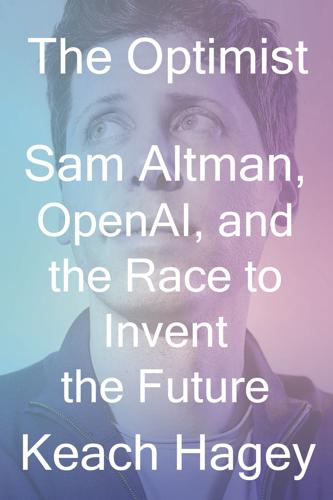
The Optimist: Sam Altman, OpenAI, and the Race to Invent the Future
by
Keach Hagey
Published 19 May 2025
“I thought about starting companies,” Altman said. “I thought about investing.” Sequoia tried to pull him further into its venture capital empire, but he turned them down. He backpacked around Europe, went to Southeast Asia multiple times, visited Japan. He even spent some time in an ashram, which he joked to New York magazine was “like a total tech-bro meme,” but which he says changed his life. “I’m sure I’m still anxious and stressed in a lot of ways, but my perception of it is that I feel very relaxed and happy and calm.” (Annie Altman says her brothers made fun of her for being so into meditation that she became the president of the Tufts Buddhist Mindfulness Sangha, but a few years later she found out Sam was hosting meditation groups at his home—today, she questions just how much time Sam actually spent in Indian ashrams.)
…
Morrow), 141–42 Bender, Emily, 252 Bengio, Yoshua, 183–84, 188, 272 Berners-Lee, Tim, 244 Betts-LaCroix, Joe, 257–59 Bezos, Jeff, 229, 260 bias encoded in AI, 252 Biden administration AI policies, 232, 267, 277, 299–300 Biden, Joe, 273, 296–300 Big Island of Hawaii, 227, 250, 311–12 Big Sur, CA, 134, 171, 260 Big Tech companies, 182, 185, 197, 299, 308 Bill and Melinda Gates Foundation, 303 bin Salman, Mohammed, of Saudi Arabia (“MBS”), 231 Bing search engine, 216, 271 Bird, Leah, 28–29, 43 Bitcoin, 142 BitTorrent, 244 Black people and communities, 26–27, 40, 53, 164 Chicago’s first black mayor, 21–22, 33–34, 37 racism among tech bros, 164–65 see also race and racism black-pilled, 1 Blackwell, Trevor, 63, 74, 75, 94 “blip, the,” 7, 14–15, 276–94, 295–310, 311–15 Blizzard Entertainment, 215 Bloomberg (news site), 67, 207, 276 Bloomberg limited partnership, 234 Bloomberg, Michael, 155 Blumenthal, Richard, 309 BookCorpus dataset, 220 Boom, Steve, 126 Boost mobile network, 80, 99–105 Borgmann, Jolene, 201–2, 226–27 Bostrom, Nick, 5, 163–66, 168–70, 241 Future of Humanity Institute, 5, 165–66, 241–42, 267 Superintelligence: Paths, Dangers, Strategies, 5, 163–66, 167–68 Botha, Roelof, 88, 93, 96, 124 Bowles, Nellie, 205 Box cloud storage company, 96 Boyden, Ed, 199 Breakout (video game), 147 Brennan-Jobs, Lisa, 112–13 Bridgewater Associates hedge fund, 212 Brin, Sergey, 85, 88, 192 Brockman, Anna, 245, 294, 309 Brockman, Greg, 16 during “the blip,” 277–79, 283–84, 286–89, 291–94, 305, 308–9, 310 in his “code cave,” 175–76, 246–47 as an OpenAI founder, 172–78, 183–88 role in developing GPT-4, 189–96, 209, 215–23, 242–51, 267–68 Brockman, Ron, 173 Brooklyn’s Park Slope, 29–30 Brooks, David, 132 Brown, Jerry, 205, 206 Brown, Willie, 205–5, 256 Brundage, Miles, 241–42, 253 Brunswick, Georgia, 23–25 Buchheit, Paul, 123, 150–51 Bucktown neighborhood of Chicago, 34 Buffet, Warren, 212 BuildZoom digital construction marketplace, 138 bullying, 131, 287 Burger King, 62 Burning Man Festival, 1, 198–99 Burt, Matthew, 92, 93 Business Insider, 260, 277 California affordable housing crisis in, 197, 205–6 ballot measure limiting short-term rentals, 262, 274, 292 Daly City, 162 Irvine, 99, 105 Mountain View, 85, 94, 107, 122, 133, 139, 149, 161, 172, 182, 235 Napa Valley, 185, 190, 260 Oakland, 195 YC Startup School at Berkeley and Stanford, 122–23, 194, 234 see also Palo Alto, CA; San Francisco; Silicon Valley capitalism, 40, 166, 195, 225, 314 “capped profit” model, 229–30, 304 carbon footprint, 252 Carlson, Tucker, 294, 313 Carr, Eric, 120–21 carried interest (“carry”), 73, 158, 281 cars, self-driving, 168, 223–24 cars, tech bros’ love of, 26, 51 Castro, Daniel, 300–301 Cement City housing project, 35 Center for AI Policy, 301 Center for Security and Emerging Technology (CSET) at Georgetown, 267, 299, 300 Central Reform Congregation, 15, 43, 227 Centre for the Governance of AI, 267 Centre for the Study of Existential Risk, 168 Chafkin, Max, 131, 205, 258 Chang, Jeff, 198 Character Technologies, Inc., 271 charities/philanthropy, see affordable housing; effective altruism (EA) chatbots, 3, 9, 174, 263, 268–70 Anthropic’s Claude, 268, 278, 285 antisemitic, 270 giving a superego to the, 264 Google’s Meena, 270 Microsoft’s Tay, 270 pedophilia and, 254 Quora’s Poe, 278–79 “wrappers” around AI, 278–79 ChatGPT, 1, 3, 5, 14–15, 17, 208, 253, 269–73, 276, 278, 285–86, 308, 310 Che, Sally, 25, 49–51, 227, 260–61 Checkr background check automation company, 149–50, 156 Chernobyl nuclear disaster, 135 Chesky, Brian, 157, 236, 263, 270, 274, 277, 289, 292 chess, 67, 151, 145–46, 191, 215–16 Cheung, Adora, 157, 195 Chicago Altman family in, 21–38 Bucktown neighborhood of, 34 first Black mayor of, 21–22, 33–34, 37 Lincoln Park neighborhood of, 36 Chicago Toy & Game Group, 209 China, 230–31, 267, 314 China Syndrome, The (film), 135 chips, 225, 280–81, 298, 315 global positioning system (GPS) chips in mobile phones, 57–58, 99 graphics processing units (GPUs), 176, 181–82, 219, 247, 255 the US CHIPS and Science Act, 298 Christiano, Paul, 178, 213, 276–77, 299 Chrome web browser, 272 Chronicle of Philanthropy, The, 213 Chung, Patrick, 13, 61–62, 74, 78–81, 89–93, 116, 121 Church of Jesus Christ of Latter-day Saints, 55 Churchill, Winston, 256 Cincotta, Gale, 22, 29, 35 Cingular Wireless, 58, 62, 103–4, 110 Cisco, 87, 122, 210 Clark, Chris, 198 Clark, Jack, 207, 241, 253, 266, 273 Clarke, Arthur C., 47 Claude the chatbot, 268, 278, 285 Clayton, a suburb of St.
…
Morrow), 141–42 Bender, Emily, 252 Bengio, Yoshua, 183–84, 188, 272 Berners-Lee, Tim, 244 Betts-LaCroix, Joe, 257–59 Bezos, Jeff, 229, 260 bias encoded in AI, 252 Biden administration AI policies, 232, 267, 277, 299–300 Biden, Joe, 273, 296–300 Big Island of Hawaii, 227, 250, 311–12 Big Sur, CA, 134, 171, 260 Big Tech companies, 182, 185, 197, 299, 308 Bill and Melinda Gates Foundation, 303 bin Salman, Mohammed, of Saudi Arabia (“MBS”), 231 Bing search engine, 216, 271 Bird, Leah, 28–29, 43 Bitcoin, 142 BitTorrent, 244 Black people and communities, 26–27, 40, 53, 164 Chicago’s first black mayor, 21–22, 33–34, 37 racism among tech bros, 164–65 see also race and racism black-pilled, 1 Blackwell, Trevor, 63, 74, 75, 94 “blip, the,” 7, 14–15, 276–94, 295–310, 311–15 Blizzard Entertainment, 215 Bloomberg (news site), 67, 207, 276 Bloomberg limited partnership, 234 Bloomberg, Michael, 155 Blumenthal, Richard, 309 BookCorpus dataset, 220 Boom, Steve, 126 Boost mobile network, 80, 99–105 Borgmann, Jolene, 201–2, 226–27 Bostrom, Nick, 5, 163–66, 168–70, 241 Future of Humanity Institute, 5, 165–66, 241–42, 267 Superintelligence: Paths, Dangers, Strategies, 5, 163–66, 167–68 Botha, Roelof, 88, 93, 96, 124 Bowles, Nellie, 205 Box cloud storage company, 96 Boyden, Ed, 199 Breakout (video game), 147 Brennan-Jobs, Lisa, 112–13 Bridgewater Associates hedge fund, 212 Brin, Sergey, 85, 88, 192 Brockman, Anna, 245, 294, 309 Brockman, Greg, 16 during “the blip,” 277–79, 283–84, 286–89, 291–94, 305, 308–9, 310 in his “code cave,” 175–76, 246–47 as an OpenAI founder, 172–78, 183–88 role in developing GPT-4, 189–96, 209, 215–23, 242–51, 267–68 Brockman, Ron, 173 Brooklyn’s Park Slope, 29–30 Brooks, David, 132 Brown, Jerry, 205, 206 Brown, Willie, 205–5, 256 Brundage, Miles, 241–42, 253 Brunswick, Georgia, 23–25 Buchheit, Paul, 123, 150–51 Bucktown neighborhood of Chicago, 34 Buffet, Warren, 212 BuildZoom digital construction marketplace, 138 bullying, 131, 287 Burger King, 62 Burning Man Festival, 1, 198–99 Burt, Matthew, 92, 93 Business Insider, 260, 277 California affordable housing crisis in, 197, 205–6 ballot measure limiting short-term rentals, 262, 274, 292 Daly City, 162 Irvine, 99, 105 Mountain View, 85, 94, 107, 122, 133, 139, 149, 161, 172, 182, 235 Napa Valley, 185, 190, 260 Oakland, 195 YC Startup School at Berkeley and Stanford, 122–23, 194, 234 see also Palo Alto, CA; San Francisco; Silicon Valley capitalism, 40, 166, 195, 225, 314 “capped profit” model, 229–30, 304 carbon footprint, 252 Carlson, Tucker, 294, 313 Carr, Eric, 120–21 carried interest (“carry”), 73, 158, 281 cars, self-driving, 168, 223–24 cars, tech bros’ love of, 26, 51 Castro, Daniel, 300–301 Cement City housing project, 35 Center for AI Policy, 301 Center for Security and Emerging Technology (CSET) at Georgetown, 267, 299, 300 Central Reform Congregation, 15, 43, 227 Centre for the Governance of AI, 267 Centre for the Study of Existential Risk, 168 Chafkin, Max, 131, 205, 258 Chang, Jeff, 198 Character Technologies, Inc., 271 charities/philanthropy, see affordable housing; effective altruism (EA) chatbots, 3, 9, 174, 263, 268–70 Anthropic’s Claude, 268, 278, 285 antisemitic, 270 giving a superego to the, 264 Google’s Meena, 270 Microsoft’s Tay, 270 pedophilia and, 254 Quora’s Poe, 278–79 “wrappers” around AI, 278–79 ChatGPT, 1, 3, 5, 14–15, 17, 208, 253, 269–73, 276, 278, 285–86, 308, 310 Che, Sally, 25, 49–51, 227, 260–61 Checkr background check automation company, 149–50, 156 Chernobyl nuclear disaster, 135 Chesky, Brian, 157, 236, 263, 270, 274, 277, 289, 292 chess, 67, 151, 145–46, 191, 215–16 Cheung, Adora, 157, 195 Chicago Altman family in, 21–38 Bucktown neighborhood of, 34 first Black mayor of, 21–22, 33–34, 37 Lincoln Park neighborhood of, 36 Chicago Toy & Game Group, 209 China, 230–31, 267, 314 China Syndrome, The (film), 135 chips, 225, 280–81, 298, 315 global positioning system (GPS) chips in mobile phones, 57–58, 99 graphics processing units (GPUs), 176, 181–82, 219, 247, 255 the US CHIPS and Science Act, 298 Christiano, Paul, 178, 213, 276–77, 299 Chrome web browser, 272 Chronicle of Philanthropy, The, 213 Chung, Patrick, 13, 61–62, 74, 78–81, 89–93, 116, 121 Church of Jesus Christ of Latter-day Saints, 55 Churchill, Winston, 256 Cincotta, Gale, 22, 29, 35 Cingular Wireless, 58, 62, 103–4, 110 Cisco, 87, 122, 210 Clark, Chris, 198 Clark, Jack, 207, 241, 253, 266, 273 Clarke, Arthur C., 47 Claude the chatbot, 268, 278, 285 Clayton, a suburb of St.

Survival of the Richest: Escape Fantasies of the Tech Billionaires
by
Douglas Rushkoff
Published 7 Sep 2022
The enterprise originally catered to families seeking temporary storm shelters, before it went into the long-term apocalypse business. The com pany logo, complete with three crucifixes, suggests their services are geared more toward Christian evangelist preppers in red state America than billionaire tech bros playing out sci-fi scenarios. There’s something much more whimsical about the facilities in which most of the billionaires—or, more accurately, aspiring billionaires—actually invest. A company called Vivos is selling luxury underground apartments in converted Cold War munitions storage facilities, missile silos, and other fortified locations around the world.
…
That’s why the first thing wealthy preppers worry about when fantasizing doomsday bunkers is how to maintain the allegiance of the mercenaries protecting them. A revolt of the masses is not a hypothetical fear. Even without a revolution, the suffering masses are hard to look at and think about. No matter how good they get at repressing it, tech bros can’t help but experience twitches of empathy when witnessing the suffering of others. Digital technology provides the perfect window for keeping an eye on the oppressed without allowing those compassionate instincts to kick in. Under the guise of increased connectivity, social media helps engender an entirely less compelling and experiential form of connection.
…
Civilization, markets, and technology give us ways to channel that innate competitiveness toward better outcomes for all. Both narratives are steeped in the ideology of progress and the mythology of some fundamentally different place to which we’re all going—or to which at least some lucky few of us are going. The tech bros and their most ardent antagonists fall into the same mental trap. Whether corporate or counterculture, these conquest narratives all follow what we might call heroic journeys or New Testament architectures. Struggle, progress, climactic apocalypse, and then salvation for those with the right belief, psychedelic experience, computer processor, or selfish genes.
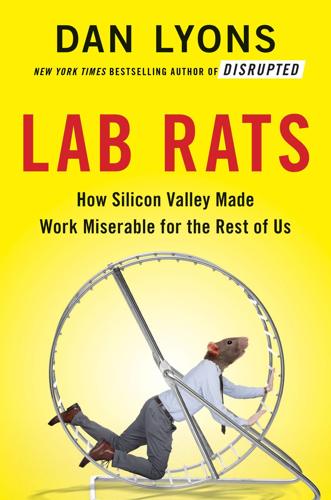
Lab Rats: How Silicon Valley Made Work Miserable for the Rest of Us
by
Dan Lyons
Published 22 Oct 2018
San Francisco, once a city full of artists and hippies, with a vibrant gay community, has become overrun with dipshit tech bros zipping around on electric scooters, complaining about the growing ranks of homeless people, seemingly oblivious to the fact that they—the tech bros—are the ones who created the housing crisis that has pushed so many people onto the streets. “San Francisco has become unrecognizable,” a sixty-something techie told me, explaining why she had sold her home and fled the city. What didn’t she like? “The greed,” she said. Now those same mercenary, clueless tech bros who have ruined San Francisco are gaining ever more power and wielding influence that reaches beyond the tech industry into the culture at large.
…
New York Times, August 15, 2015. https://www.nytimes.com/2015/08/16/technology/inside-amazon-wrestling-big-ideas-in-a-bruising-workplace.html. Lemann, Nicholas. “The Network Man: Reid Hoffman’s Big Idea.” New Yorker, October 12, 2015. https://www.newyorker.com/magazine/2015/10/12/the-network-man. Miller, Michael E. “‘Tech Bro’ Calls San Francisco ‘Shanty Town,’ Decries Homeless ‘Riffraff’ in Open Letter.” Chicago Tribune, February 18, 2016. http://www.chicagotribune.com/bluesky/technology/ct-tech-bro-letter-san-francisco-homeless-20160218-story.html. Mims, Christopher. “In Self-Driving-Car Road Test, We Are the Guinea Pigs.” Wall Street Journal, May 13, 2018. https://www.wsj.com/articles/in-self-driving-car-road-test-we-are-the-guinea-pigs-1526212802.
…
As outsourcing takes off, manufacturing jobs in the United States plunge. Antidepressant usage climbs, as do suicide rates. Income inequality widens. The top one percent takes ever more of the pie. My sense that there might be a connection between the Internet and worker unhappiness was reinforced by what I saw on the ground in Silicon Valley—the hustlers and tech bros, the greedy VCs, the obscenely rich oligarchs, the new compact with employees, the stress, the insecurity, the suicides and homelessness. It doesn’t seem to make sense that the same idealistic, altruistic wizards who design beautiful products and deliver exquisite user experiences—who create so much delightion, as my colleagues at HubSpot would say—should cause so much misery.

Cultish: The Language of Fanaticism
by
Amanda Montell
Published 14 Jun 2021
rape allegations: Jenavieve Hatch, “Bikram Yoga Creator Loses It When Asked About Sexual Assault Allegations,” Huffington Post, October 28, 2016, https://www.huffpost.com/entry/bikram-choud hury-loses-it-when-asked-about-sexual-assault-allegations_n_58139871e4b0390e69d0014a. Part 6: Follow for Follow i. “Thinking about something”: Be Scofield, “Tech Bro Guru: Inside the Sedona Cult of Bentinho Massaro,” The Guru Magazine, December 26, 2018, https://gurumag.com/tech-bro-guru-inside-the-sedona-cult-of-bentinho-massaro/. “tech bro guru”: Be Scofield, “Tech Bro Guru: Inside the Sedona Cult of Bentinho Massaro,” Integral World, December 26, 2018, http://www.integralworld.net/scofield8.html. quack spiritual consortium: Jesse Hyde, “When Spirituality Goes Viral,” Playboy, February 18, 2019, https://www.playboy.com/read/spirituality-goes-viral.
…
The twelve-day New Age boot camp was promised to offer one hundred guests exclusive access to Massaro’s most profound teachings. By then, “cult leader” accusations had already started trickling onto the web. The day before the retreat, a Sedona-based reporter named Be Scofield published an incriminating exposé characterizing Massaro as a “tech bro guru” using growth-hacker marketing to build a quack spiritual consortium: endangering followers’ bodies with ridiculous health advice (like living on nothing but grape juice for weeks—Massaro called this “dry fasting”), manipulating them into cutting off friends and family (“Fuck your relationships.
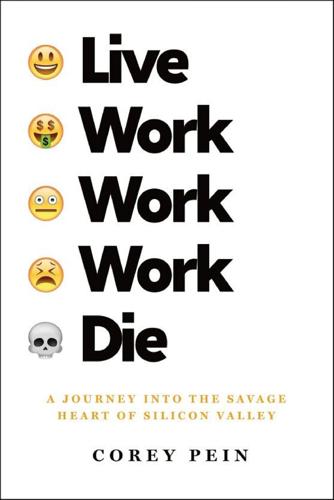
Live Work Work Work Die: A Journey Into the Savage Heart of Silicon Valley
by
Corey Pein
Published 23 Apr 2018
Programmers, designers, developers, and sundry internet Okies fled their own individual dust bowls by the thousands to settle in San Francisco, land of 13 percent postrecession job growth—and freebies! They looked alike, they talked alike, they ate alike, they thought alike. Before long, I had developed a private taxonomy of tech bros—and they were, mostly, guys. There were, I reasoned, three major categories: clowns, drones, and bullies. Not all clowns were so obvious as Mr. Bunny Ears. In an environment suffused with social anxiety, it was enough to be merely outgoing. Another night, while wandering dissolutely through a tech conference pre-party, I found myself drawn to a table where a boisterous, chubby-cheeked young man was holding court.
…
Adrian stood out by wearing a bright blue shirt with a garish yellow holster clipped to his belt, which looked like it belonged on a Lego Man. The holster was more than big enough to accommodate Adrian’s ginormous iPhone 6 Plus, which he eagerly demonstrated. His was the stereotypical showmanship of a used car salesman—and it worked! The second category of tech bros genuinely believed that if they hit the big time, it would be on account of their hard work and dedication. These were the drones. Almost all the guys in Hacker Condo were drones. Each had a mysterious “side project”—a startup in the making—that was inevitably too ill-formed to talk about, or far too technically complicated to remember.
…
By emulating the performative, coked-up machismo of their overlords in the finance sector, the bullies were determined to avoid the old stigma of the computer nerd as a simpering eunuch. Being fundamentally insecure, bullies were rarely found alone. One day I was sipping tea on a bench near a huddle of corn-fed wannabe tech bros who sat spread-eagled and bragged about their recent job interviews. A beefy dude in a baseball hat said he had just received an offer from a cable TV network to work as a Web developer. But he planned to hold out as long as he could for a better offer from a more exciting company. Another guy had been making the rounds of startups.
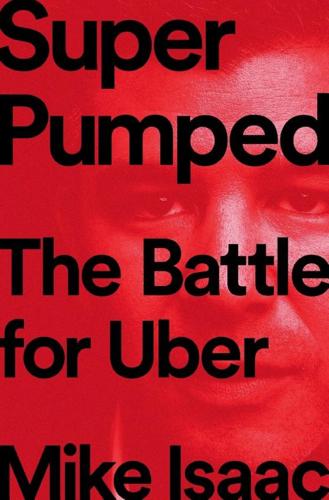
Super Pumped: The Battle for Uber
by
Mike Isaac
Published 2 Sep 2019
Uber already had an aura of arrogance about it in 2015. The pervasive trope of the “tech bro” was the ire of communications representatives across the Valley; young and moneyed, childless, these engineers and salesmen were unburdened by the daily concerns of the baristas, housekeepers, and wait staff they felt existed to serve them. A tech bro’s greatest worry was whether or not he was working at that year’s hottest “unicorn”—a noun coined in 2013 by a venture capitalist who used it to describe companies valued at more than $1 billion. By the fall of 2015, Uber was the unicorn to end all unicorns; every tech bro had to be there. Uber wasn’t alone as a haven for tech bros.
…
Uber wasn’t alone as a haven for tech bros. Snapchat, once a darling in the Valley for its innovative approach to social networking, was under fire for emails its founder had sent to fraternity brothers during his college days at Stanford. (“Fuck Bitches Get Leid,” [sic] one read.) A group of Dropbox and Airbnb employees were filmed trying to kick a group of San Francisco kids off a soccer field to make room for their corporate league game. The clip went viral, and the companies were forced to apologize to an outraged public. Whetstone and other communications team staff cringed at the thought of seeing Uber’s Vegas blowout splashed across the pages of Silicon Valley tech blogs—or worse, the Daily Mail.
…
This shift in the funding of American technology businesses would change the way a generation of the most successful startup founders would expect to be treated by their backers—the “cult of the founder” meant celebrating the vision of the founder no matter what, a slavish devotion to the CEO of a company simply because he was the CEO. Twelve-hour workdays and a nonexistent social life became things to be celebrated, the markers of a “hustle culture” that the tech bro founders embodied. (Of course, these hardworking bros also played hard, at events like X to the x.) Even when those founders were bending rules and even laws, they were treated as Platonic philosopher kings. Many believed the founders were remaking the world, making it smarter, more logical, meritocratic, efficient, and beautiful—delivering a new and much improved version: an upgrade on life.
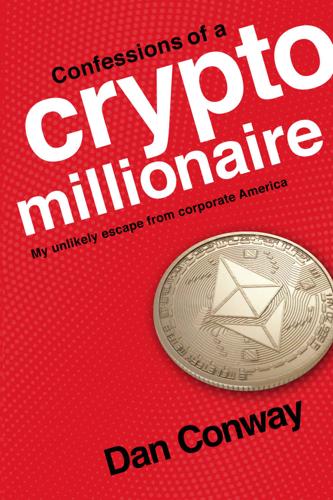
Confessions of a Crypto Millionaire: My Unlikely Escape From Corporate America
by
Dan Conway
Published 8 Sep 2019
In the years and decades ahead, it gives us a shot to revolutionize institutions the way double-entry bookkeeping did seven hundred years ago. And it might let outsiders like me storm the castle. Now, to the fucking money. My story involves large sums of money. When the boom was on, I felt like Pablo Escobar, with a chirpy attitude and a closet full of dad jeans. But my story is messy and unconventional. I’m not a traditional tech bro who struck it rich by getting in early. I had a lot more to lose when I went down the rabbit hole. I was a forty-four-year-old father of three with a conventional life on the edge of the Silicon Valley bubble. My marriage was still recovering from my past battles with demons. I’ve always had a hard time distinguishing between living life to the fullest, and selfish, self- destructive behavior like drinking too much, risking too much, and obsessing too much on any one thing as a way to make me feel different.
…
Finally, writing and finding an audience scratched my itch for prominence, and it was also a hell of a lot of fun. While researching one of my blogs, I came across a trove of data about how people are unhappy in corporate America. I started writing blogs about modern work. My first big hit was “Career Transitions: Crafting Your Medium Humble-Brag”—a sendup of the wealthy, entitled tech bros I envied. I was eating dinner the night after I posted it when I looked at my phone, and I suddenly had more than a hundred new Twitter followers. Medium staff had recommended my piece. Thirty-five thousand people had read it, and, for a time, it was the top story on the platform. I’d hit a nerve.
…
“No, it’s not,” she said. “Wikipedia is decentralized.” “Nope. Wikipedia is crowdsourced content. It is still run out of centralized services controlled by a few people.” “Listen, Dan, I’ve been working in tech for a long time, and I can tell you, it’s decentralized, and there are others. All of these tech bros getting rich is amazing, though.” I’d heard enough of this bullshit. So many people who’d missed the boat were ready to curse crypto without understanding it. Ethereum was bigger than these people could comprehend. But the fantastical price increase had opened it up for attack. Crypto was suddenly like an overexposed celebrity, and everyone was rooting for it to fail.

San Francisco Like a Local
by
DK Eyewitness
Published 4 Oct 2021
g EAT g Contents Cheap Eats TAQUERIA CANCUN ROOSTER & RICE PEACHES PATTIES THE ITALIAN HOMEMADE COMPANY BESHARAM THE FLYING FALAFEL BINI’S KITCHEN HOUSE OF NANKING g Cheap Eats g Contents Google Map TAQUERIA CANCUN Map 4; 2288 Mission Street, The Mission; ///spell.ground.fields; 415-252-9560 La Taqueria might have the longest line of the Mission’s hole-in-the-wall eateries, but old-timers and tech bros alike know that the area’s best cheap eats are found behind the red-and-yellow facade of Taqueria Cancun. Skip the hefty “Mission burritos” and go for the fresh-flavored tacos (al pastor and beef tongue are popular), slather it all in house salsa, and wash it down with a proper Mexican Coke. g Cheap Eats g Contents Google Map ROOSTER & RICE Map 1; 2211 Filbert Street, Cow Hollow; ///decide.timing.first; www.roosterandrice.com When not downward-dogging, Cow Hollow’s yoga moms flock to this shoebox-sized counter spot for a fix of $12 khao mun gai – a pile of fragrant rice with steamed chicken, cucumber, and an insanely addictive chili, ginger, and garlic sauce.
…
And, of course, there’s nothing to take your mind off your start-up’s IPO – or stock market launch – like a spot of afternoon tai chi. g Alfresco Fitness g Contents Google Map The Great Cable Car Chase Map 5; 3575 Sacramento Street, Presidio Heights; ///arts.design.scales; www.arunnersmind.com It’s a competitive tech bro’s dream. On the last Thursday of every month, fitness shop A Runner’s Mind hosts The Great Cable Car Chase, pitting runners against the Powell/Hyde cable car in a two-block uphill race. Meet at the store at 7pm to join the 2.5-mile (4-km) jog to Bay and Hyde streets, where you wait for the next car. » Don’t leave without running back to the shop afterward (assuming you’re still alive) for the post-race raffle.
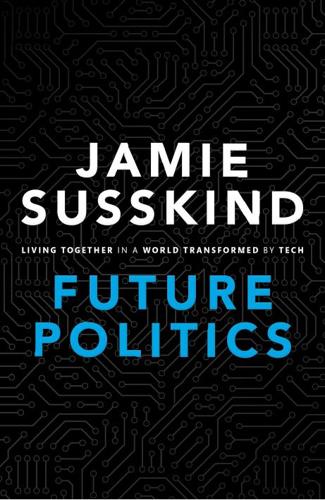
Future Politics: Living Together in a World Transformed by Tech
by
Jamie Susskind
Published 3 Sep 2018
Robert Booth, ‘Facebook Reveals News Feed Experiment to Control Emotions’, The Guardian, 30 June 2004 <https://www.theguardian. com/technology/2014/jun/29/facebook-users-emotions-newsfeeds> (accessed 11 December 2017). Halting Problem,‘Tech Bro Creates Augmented Reality App to Filter Out Homeless People’, Medium, 23 February 2016 <https://medium. com/halting-problem/tech-bro-creates-augmented-reality-app-tofilter-out-homeless-people-3bf8d827b0df> (accessed 7 December 2017). Frank Pasquale, The Black Box Society:The Secret Algorithms that Control Money and Information (Cambridge, Mass: Harvard University Press, 2015), 63; Benkler, ‘Degrees of Freedom’, 18.
…
Cambridge: Polity Press in association with Oxford: Basil Blackwell, 2010. Hajer, Maarten A. and Hendrik Wagenaar, eds. Deliberative Policy Analysis: Understanding Governance in the Network Society. New York: Cambridge University Press, 2003. Halting Problem. ‘Tech Bro Creates Augmented Reality App to Filter Out Homeless People’. Medium, 23 Feb. 2016 <https://medium.com/ halting-problem/tech-bro-creates-augmented-reality-app-to-filterout-homeless-people-3bf8d827b0df> (accessed 7 Dec. 2017). Hamilton, Alexander, James Madison, and John Jay. The Federalist Papers. New York: Penguin, 2012. Hanson, Robin, The Age of EM: Work, Love, and Life When Robots Rule the Earth.
…
More than 44 per cent of Bitcoin adopters in 2013, for instance, professed to be ‘libertarian or anarcho-capitalists who favour elimination of the state’.11 As I will argue, we put so much at risk when we delegate matters of political importance to the tiny group that happens to be tasked with developing digital technologies at a given time. That’s true whether you admire the philosophical engineers of Silicon Valley or you think that most ‘tech bros’ have the political sophistication OUP CORRECTED PROOF – FINAL, 26/05/18, SPi РЕЛИЗ ПОДГОТОВИЛА ГРУППА "What's News" VK.COM/WSNWS Introduction 9 of a transistor. We need an intellectual framework that can help us to think clearly and critically about the political consequences of digital innovation.
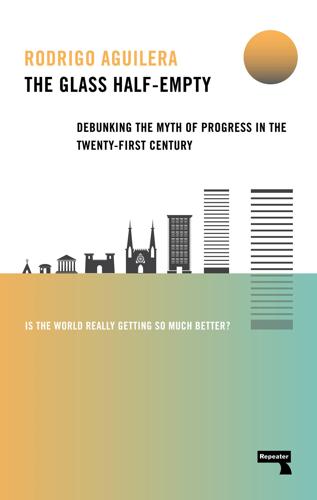
The Glass Half-Empty: Debunking the Myth of Progress in the Twenty-First Century
by
Rodrigo Aguilera
Published 10 Mar 2020
Proof that even the most academically-friendly strains of the New Right can act as a pipeline for further radicalization was seen in a 2019 study by five Cornell University researchers who analyzed more than 79 million YouTube comments on alt-right, alt-lite, and IDW channels and concluded that “the three communities increasingly share the same user base; users consistently migrate from milder to more extreme content; and a large percentage of users who consume Alt-right content now consumed Alt-lite and I.D.W. content in the past”.29 These trends will only grow stronger as new media gradually takes over the mainstream. Future Fetish “I no longer believe that freedom and democracy are compatible.” — Peter Thiel Libertarians and the New Right might be the most eager adherents of the progress narrative, but there is another group that finds within itself boundless possibilities for the future: tech bros. The pervasiveness of libertarianism within Silicon Valley has resulted in the ideology having its own subspecies known as technolibertarianism, also called extroprianism. This emerged in the late 1980s through the musings of futurist philosophers such as Tom Bell and Max More who co-founded the now defunct Extropy Institute.
…
The possibility that the US could be ruled one of the “benevolent” kings of Silicon Valley should be an almost equally frightening prospect. One could be tempted to discount transhumanism and techno-libertarianism, or even more extreme ideologies like neo-reaction, as the misguided intellectual fantasies of highly narcissistic tech bros and online philosophers. Thankfully, none of the New Optimists fall squarely in these ideological camps (Pinker has publicly expressed skepticism of transhumanism, albeit on efficiency rather than moral grounds37). But still, their benign view of science and technology as solutions to many of our political and economic ills is discomforting in that it fails to ask the question of why these problems require miracle cures in the first place.
…
, Swiss Finance Institute Research Paper, 19-41, May 2015, http://dx.doi.org/10.2139/ssrn.2612047 21 Schechter, A., “Google Is as Close to a Natural Monopoly as the Bell System Was in 1956”, Pro Market, 9 May 2017, https://promarket.org/google-close-natural-monopoly-bell-system-1956/ 22 Griswold, A., “Rich Tech Bros are Super Liberal — Except for One Thing”, Quartz, 6 Sep. 2017, https://qz.com/1070813/the-tech-elite-are-extremely-liberal-except-for-when-it-comes-to-one-thing/ 23 Clark, B., “Bro Culture is Poisoning Silicon Valley”, The Next Web, 10 Mar. 2017, https://thenextweb.com/insider/2017/03/11/bro-culture-poisoning-silicon-valley/ 24 Data from the Lobbying Database of the Center for Responsive Politics, https://www.opensecrets.org/lobby/ 25 Calculation based on $1,843.7 billion in corporate profits after tax (without IVA and CCAdjin) in 2018.
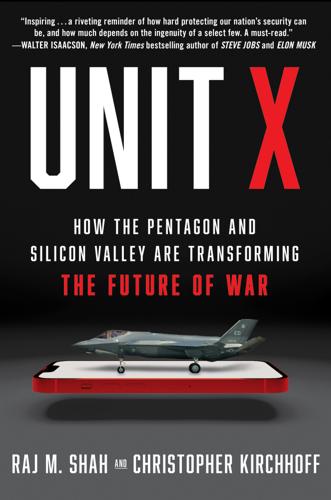
Unit X: How the Pentagon and Silicon Valley Are Transforming the Future of War
by
Raj M. Shah
and
Christopher Kirchhoff
Published 8 Jul 2024
It broke out into the open after the Pentagon’s chief weapons buyer dismissed the importance of Silicon Valley technology. Eight months into the conflict, Pentagon acquisition chief Bill LaPlante—the man most responsible for future U.S. armaments—said this in an interview: We’re not fighting in Ukraine with Silicon Valley right now, even though they’re going to try to take credit for it. The tech bros aren’t helping us too much in Ukraine…. It’s hardcore production of really serious weaponry. That’s what matters. If somebody gives you a really cool liquored up story about a DIU project or OTA contract, ask them when it’s going into production, ask them how many numbers, ask them what the unit cost is going to be, ask them how it will work against China.
…
With a reported unit cost of $692 million, the total program cost to develop and operate one hundred B-21s will exceed $200 billion. In comparison, each Anduril ALTIUS loitering munition drone costs about $250,000. Certain essential missions require stealth bombers, yet their cost compared with other approaches cannot be ignored. Contrary to LaPlante’s assertion, the “tech bros” are in Ukraine and they matter to the fight. The next question is what they might do for other wars in other places. TODAY IN UKRAINE, TOMORROW IN TAIWAN Ukraine has become a laboratory not only for DIU operational concepts that pair commercial tech with traditional weapon systems, but also for how a Chinese invasion of Taiwan would likely unfold.
…
Stephen Biddle, “Back in the Trenches: Why New Technology Hasn’t Revolutionized Warfare in Ukraine,” Foreign Affairs, September/October 2023, https://www.foreignaffairs.com/ukraine/back-trenches-technology-warfare. “We’re not fighting in Ukraine with Silicon Valley right now”: Valerie Insinna, “LaPlante Pokes Silicon Valley ‘Tech Bros,’ Calls for Increased Munitions Production for Ukraine,” Breaking Defense, November 8, 2022. Full remarks by LaPlante available at Acquisition Talk podcast, “Getting Weapons into Production with USD A&S Bill LaPlante,” November 10, 2022, https://acquisitiontalk.com/2022/11/podcast-getting-weapons-into-production-with-usd-as-bill-laplante/.
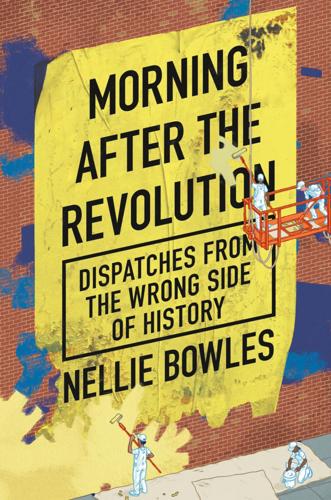
Morning After the Revolution: Dispatches From the Wrong Side of History
by
Nellie Bowles
Published 13 May 2024
In spring of 2022, a man who had been convicted of fifteen burglary and theft-related felonies from 2002 to 2019 was rearrested on sixteen new counts of burglary and theft. Most of those charges were dismissed and he was released on probation. It really didn’t inspire confidence that the city was taking any of this seriously. Boudin’s defenders liked to dismiss his critics as whiny tech bros or rich right-wingers. One pro-Boudin flyer said Stop the right-wing agenda. But the drumbeat of complaints came from plenty of good liberals, and, when the recall came, that’s also who voted against him. If it were only the rich, well, the rich can hire private security, or move to the suburbs.
…
The drugs, the homelessness, the crime—blame the Google employees who skewed the city’s condo market and brought in their artisanal chocolates, their scooters, their trendy barbers. If not for them and the inequality they created, San Francisco would still be good. There’s some truth to that: you cannot tell the story of the housing crunch without the tech boom. But people started looking at city hall, and at the school board. They realized there were no tech bros there. The fentanyl epidemic and the pandemic cracked something. With the city locked down endlessly, with people dying in the streets, with schools closed, it was slowly becoming OK to say Maybe this is ridiculous. Maybe this isn’t working. Of course, it’ll take more than a couple of recall votes to save San Francisco.

Uncanny Valley: A Memoir
by
Anna Wiener
Published 14 Jan 2020
The bookstore was full of oversized art books that were easy to imagine sitting on glass-top coffee tables in glass-walled apartments. I couldn’t find anything I wanted to read. Who lives there, I asked. The bookseller shrugged, and straightened a display of unlined notebooks. “Wall Street people, hedge fund types,” he said. “Tech bros.” Tech bros, I thought—here, too. The nature of cities was to change, I knew. I tried not to feel entitled: I was aware that my parents, who had moved to Brooklyn in the early 1980s, had once been the outsiders rewriting the borough, just as I had spent four years contributing to the erosion of Polish and Puerto Rican Greenpoint.
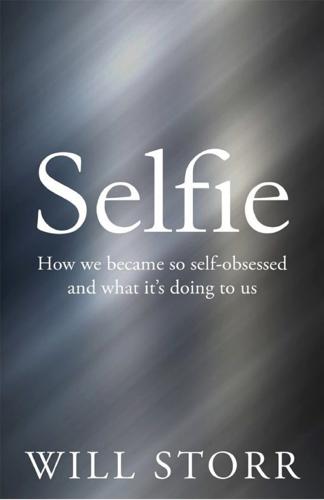
Selfie: How We Became So Self-Obsessed and What It's Doing to Us
by
Will Storr
Published 14 Jun 2017
We want it to be self-directed.’ Down in the audience, a journalist from Inc.com thought what he was hearing was ‘astonishingly sexist’. After all, here was a man, he’d later write, chattering about ‘making women’s sex organs more aesthetically pleasing’. It seemed to him that Austen was just another of these ‘tech bros’ who ‘talk endlessly about changing the world with technology while building frivolous things’. After the presentation, he asked some follow-up questions. Gome explained to the reporter that the change in scent wasn’t only there to help customers connect to themselves in a ‘better way’, it was an indicator that the product was actually working.
…
Austen had hanged himself. He was thirty-one. Shortly before his death, Austen had stayed with his best friend, Mike Alfred. ‘He felt like the whole world was against him,’ Alfred told me. ‘He took it a lot more personally than I’d advise someone to.’ ‘But it was personal,’ I said. ‘They were calling him a “tech bro” and a sexist.’ ‘Yes, it was personal. And he took it like that. He took it pretty hard. He talked about killing himself every day.’ I asked if there might have been any truth to what they were saying. There was some evidence of sexism in Austen’s past. In 2009 he’d self-published a semi-fictional memoir that contained some unpleasant and juvenile talk of strippers and orgies.
…
Two male entrepreneurs launch probiotic supplement that alters women’s natural scent’, Margot Peppers, Mail Online, 20 November 2014; ‘The Founder Of Sweet Peach Is Actually A Woman And She Doesn’t Want Your Vagina To Smell Like Fruit’, Arabelle Sicardi, BuzzFeed, 20 November 2014; ‘Is the Sweet Peach startup a complete scam?’, Selena Larson, Daily Dot Tech, 21 November 2014; ‘The Vagina Bio-Hack That Wasn’t: How Two “Startup Bros” Twisted the “Sweet Peach” Mission’, Jessica Cussins, Huffington Post, 26 November 2014; ‘These 2 tech bros want to make vaginas smell like peaches’, Selena Larson, Daily Dot Tech, 19 November 2014; ‘These Startup Dudes Want to Make Women’s Private Parts Smell Like Ripe Fruit’, Jeff Bercovici, Inc.com, 19 November 2014; ‘Why We Need to Talk More About Mental Illness in Tech and Business’, Jeff Bercovici, Inc.com, 7 July 2015; Life Without a Windshield, Austen James (Broken Science, 2009).
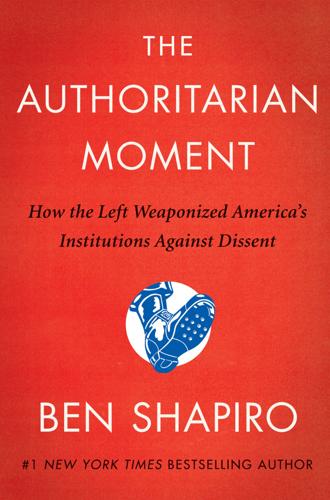
The Authoritarian Moment: How the Left Weaponized America's Institutions Against Dissent
by
Ben Shapiro
Published 26 Jul 2021
Dedication To my children, who deserve to grow up in a country that values the freedoms promised by the Declaration of Independence and guaranteed by our Constitution Contents Cover Title Page Dedication Introduction Chapter 1: How to Silence a Majority Chapter 2: How the Authoritarian Left Renormalized America Chapter 3: The Creation of a New Ruling Class Chapter 4: How Science™ Defeated Actual Science Chapter 5: Your Authoritarian Boss Chapter 6: The Radicalization of Entertainment Chapter 7: The Fake News Chapter 8: Unfriending Americans The Choice Before Us Acknowledgments Notes Index About the Author Also by Ben Shapiro Copyright About the Publisher Introduction According to the institutional powers that be, America is under authoritarian threat. That authoritarian threat to America, according to the Democratic Party, establishment media, social media tech bros, Hollywood glitterati, corporate bosses, and university professors, is clear—and it comes directly from the political Right. And that authoritarian threat, according to those who control vast swaths of American life, manifested itself most prominently on January 6, 2021. On that day, hundreds if not thousands of rioters broke away from a far larger group of pro-Trump peaceful protesters and stormed the United States Capitol, many seeking to do violent harm to members of Congress and the vice president of the United States.
…
He then correctly noted, “We can continue to stand for free expression, understanding its messiness, but believing that the long journey toward greater progress requires confronting ideas that challenge us. Or we can decide the cost is simply too great. I’m here today because I believe we must continue to stand for free expression.”27 That allegiance to free speech principles—principles commonly held by the tech bros at the launch of their companies—didn’t extend to other tech leaders. These tech leaders suggested that the very basis for their companies—free access to speech platforms—had to be reversed. Their companies would no longer be about free speech, but about free speech for the approved members of the New Ruling Class.
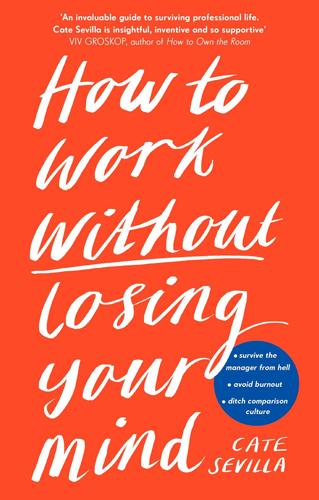
How to Work Without Losing Your Mind
by
Cate Sevilla
Published 14 Jan 2021
I’ve gone through weeks where it felt like the only purpose of my job was to toe the company line and make other women cry. I’ve been gaslit with poor performance reviews and felt pretty abandoned by HR. In addition to my own aforementioned loo-crying I’ve also tried powerposing before stressful meetings (sorry, Amy Cuddy, but it didn’t help) and meditating in designated quiet rooms usually reserved for tech-bro power naps. I’ve also hid from my manager in those same quiet rooms watching episodes of Nashville on my laptop as a way of keeping myself sane. Some of the more recent career drama I’ve dealt with was in early 2019, when only four months into my new role as editor-in-chief of the women’s lifestyle website The Pool, I lost my damn job.
…
And she’s been able to make this important change to her company’s maternity policy because power and economic freedom are both currently on her side, and she has changed the game so that she and the other people who have children on her team can stay within the realm of power and economic freedom that keeps them as insulated as possible from the motherhood penalty. Founding a company, being a CEO, going after funding, building something giant in the world of tech bros and male VCs – it’s not for everyone. But for those of you with enough power, with a foundation that contains a certain amount of privilege – will you use your economic freedom to make big changes for those who can’t? We need you. What if it was you who could help build a future with in-office crèches and proper, family-oriented working systems?

Mindf*ck: Cambridge Analytica and the Plot to Break America
by
Christopher Wylie
Published 8 Oct 2019
Our system is broken, our laws don’t work, our regulators are weak, our governments don’t understand what’s happening, and our technology is usurping our democracy. So I had to learn to find my voice in order to speak up about what I saw was happening. I am hopeful, because I have seen what happens when we find our voices. When The Guardian took on this story, many journalists saw it as a series of conspiracy theories. The tech bros of Silicon Valley laughed at the notion that they should be subjected to any scrutiny. Politicos in D.C. and Westminster called the story niche. It took the persistence of a team of women at The Guardian’s Arts & Culture section and its Sunday paper, The Observer, where the blockbuster story appeared.
…
I knew from the moment I met you that you were one of the few people who could tell this story to the world in a way that makes people take note. You woke up the world and shook giants. I may have had the pink hair, but you were the one who wielded the pen. You kept going despite an unrelenting stream of abuse and threats from the alt-right, private intelligence firms, and Silicon Valley tech bros. You took me on for no other reason than a sincere dedication to the greater good and you deserve every accolade for your brilliant journalism. Sarah Donaldson and Emma Graham-Harrison, thank you for your pivotal role in telling this story to the world. Your work alongside Carole’s is largely why I can so confidently claim that I would not be where I am today without the women involved.
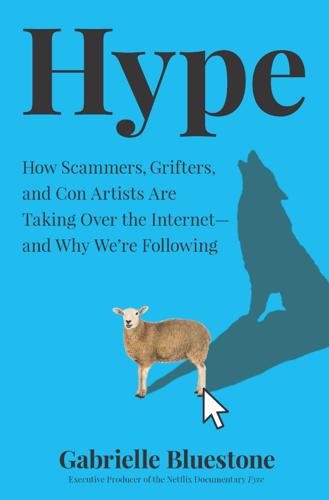
Hype: How Scammers, Grifters, and Con Artists Are Taking Over the Internet―and Why We're Following
by
Gabrielle Bluestone
Published 5 Apr 2021
("Billy") McFarland et al., Civil Action No. 1:18-cv-6634 (S.D.N.Y. filed July 24, 2018), https://www.sec.gov/litigation/complaints/2018/comp-pr2018-141.pdf. 84.Doree Lewak, "The College Dropout Behind NYC’s Most Exclusive Credit Card," New York Post, July 5, 2014, https://nypost.com/2014/07/05/the-22-year-old-dropout-who-created-nycs-most-exclusive-credit-card/. 85.Gregory E. Miller, "Ja Rule Steals Rick Ross’ Fashion Week Show," New York Post, September 6, 2014, https://nypost.com/2014/09/06/ja-rule-steals-rick-ross-fashion-week-show/. 86.Kathianne Boniello, "Tech Bro Sued for Trashing $13K-a-Month West Village Pad," New York Post, June 28, 2015, https://nypost.com/2015/06/28/tech-bro-sued-for-trashing-13k-a-month-west-village-pad/. 87.Rachel Kurzius, "Guess What Happened When Fyre Festival Organizer Promised D.C. A Ja Rule Concert," DCist, May 3, 2017, https://dcist.com/story/17/05/03/fyre-festival-ja-rule-magnises-wale/. 88.Confidential Staff, "Fyre Festival Debacle No Surprise to New York Jet-Setters," New York Daily News, May 2, 2017, https://www.nydailynews.com/entertainment/gossip/confidential/new-york-jet-setters-surprised-fyre-festival-chaos-article-1.3130499. 89."

San Francisco Like a Local: By the People Who Call It Home
by
Dk Eyewitness
Published 5 Apr 2023
g EAT g Contents Cheap Eats TAQUERIA CANCÚN ROOSTER & RICE PEACHES PATTIES THE ITALIAN HOMEMADE COMPANY BESHARAM PIE PUNKS BINI’S KITCHEN HOUSE OF NANKING g Cheap Eats g Contents Google Map TAQUERIA CANCÚN Map 4; 2288 Mission Street, The Mission; ///spell.ground.fields; www.taqueria-cancun.cafes-world.com La Taqueria might have the longest line of the Mission’s hole-in-the-wall eateries, but old-timers and tech bros alike know that the area’s best cheap eats are found behind the red-and-yellow facade of Taqueria Cancún. Skip the hefty “Mission burritos” and go for the fresh-flavored tacos (al pastor and beef tongue are popular), slather it all in house salsa, and wash it down with a proper Mexican Coke. g Cheap Eats g Contents Google Map ROOSTER & RICE Map 1; 2211 Filbert Street, Cow Hollow; ///decide.timing.first; www.roosterandrice.com When not downward-dogging, Cow Hollow’s yogis flock to this shoebox-size fast-casual spot for a fix of $12 khao tom gai – a pile of fragrant rice with steamed chicken, cucumber, and a super addictive chili, ginger, and garlic sauce.
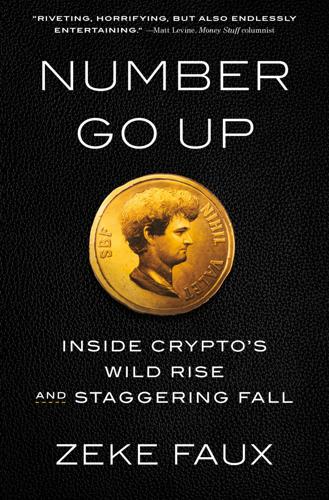
Number Go Up: Inside Crypto's Wild Rise and Staggering Fall
by
Zeke Faux
Published 11 Sep 2023
—Max Chafkin, author of The Contrarian “The only book about crypto you need to read…Faux has gone deeper than anyone inside a movement that aspires to replace traditional finance, but seems more likely to blow up and take the world down with it. Get ready to laugh, then cry, then scratch your head at the sheer insanity of billions of dollars being magicked out of thin air by stoned tech bros. By the end of the book, when Faux brings readers to a compound of crypto scammers working in slavery-like conditions in Cambodia, all your expectations will have shattered. Number Go Up is an instant-classic: Liar’s Poker for the era of digital monkey tokens, written with a sensibility that meets our absurd moment in time.”
…
The conference was supposed to be exclusively about Bitcoin, the first and largest cryptocurrency, but as this was one of the first large gatherings of any kind since Covid-19 vaccines became available, I figured anyone who was anyone from the entire crypto industry would be there. My plan was to listen politely to a bunch of tech bros pitching their apps, and then to ask them what they knew about Tether. When I got to the Mana Wynwood Convention Center, the warehouse-like venue hosting the event, I saw thousands of people waiting outside in the blazing hot sun. The line to enter snaked for at least a mile, past a garish mural of a cartoon rat and another of a bug-eyed crying clown.
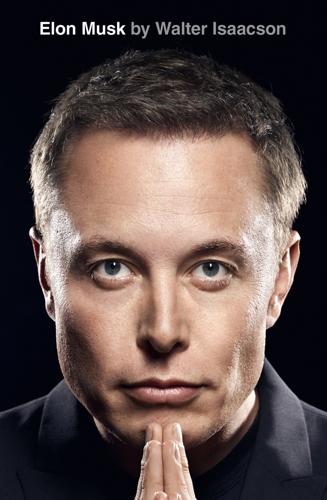
Elon Musk
by
Walter Isaacson
Published 11 Sep 2023
Musk paused, looked at the spreadsheets, and conceded the point. “Okay,” he said, “I guess we should figure out how to raise more financing.” Tarpenning says he felt like hugging Kimbal. In Silicon Valley at the time, there was a tight-knit and hard-partying community of young entrepreneurs and tech bros who had become startup millionaires, and Musk had become one of its stars. He enlisted some of his friends to invest, including Antonio Gracias, Sergey Brin, Larry Page, Jeff Skoll, Nick Pritzker, and Steve Jurvetson. But board members encouraged him to broaden the network and seek financing from one of the major venture capital firms, such as those that gilded Palo Alto’s Sand Hill Road.
…
Musk interjected with his idea for giving each user a slider they could manipulate to determine the intensity of tweets they were shown. “Some will want teddy bears and puppies, others will love combat and say ‘Bring it all on.’ ” It wasn’t quite the point San Souci was making, but when he started to follow up, a woman tried to say something and he did a surprising thing for a tech bro: he deferred to her. She asked the question that was hovering in the air: “Are you going to fire seventy-five percent of us?” Musk laughed and paused. “No, that number didn’t come from me,” he answered. “This unnamed sources bullshit has to stop. But we do face a challenge. We are headed to recession, and revenue is below cost, so we have to find ways to bring in more money or reduce costs.”
…
She went backstage to say how glad she was that he was trying to buy Twitter, and they chatted for a couple of minutes. When Taibbi was preparing to publish his Twitter Files in early December, Musk realized there was too much material for one journalist to digest. His investor and fellow free speech tech bro Marc Andreessen suggested he call in Weiss, so on the plane flying back from his quick trip to New Orleans to talk to President Macron, he sent the unexpected text that she got on the evening of December 2. She and Bowles, along with their three-month-old baby, rushed to get on a flight to San Francisco two hours later.

Snowden's Box: Trust in the Age of Surveillance
by
Jessica Bruder
and
Dale Maharidge
Published 29 Mar 2020
In 2016, it launched an initiative called Community Control Over Police Surveillance, with the goal of helping citizens lobby for local legislation regulating law enforcement’s ability to eavesdrop. A dozen jurisdictions, from the city of Seattle to the Bay Area Rapid Transit system, have adopted CCOPS laws. Some thirty other cities have movements to push for these controls. The state that gave us Silicon Valley is also leading the way to regulate what the tech bros wrought. California passed a law, due to take effect this year, allowing consumers to force companies to delete — and not sell — their personal data. In 2018, San Francisco passed the “Stop Secret Surveillance” ordinance, which bans any city agencies from using facial recognition technology. The following year, Oakland adopted a similar ban.
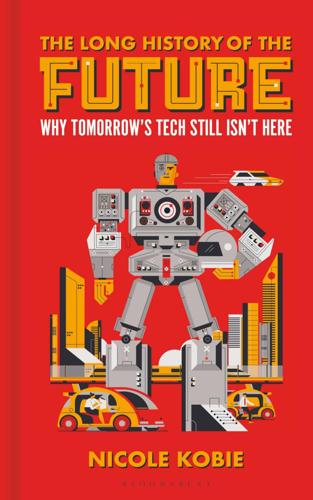
The Long History of the Future: Why Tomorrow's Technology Still Isn't Here
by
Nicole Kobie
Published 3 Jul 2024
Part of that is down to the complexity of the surgeries and systems, but if Musk’s fear of AI means more people get the help that Matt Nagle received decades ago, that’s nothing but a good thing. Critics are right that Musk is simply replicating their work from decades ago, but perhaps it’s also true that sometimes scientists need to speed things up a little, and if a tech bro billionaire is what it takes, so be it. For the time being, forget embedding AI into your brain: the future of BCI should be and will be a tool to treat the worst diseases and give a voice or movement to those without, just like their predecessors’ cochlear implants, pacemakers and bionic prosthetics.
…
AI researchers such as Timnit Gebru and Joy Buolamwini, whom we met in an earlier chapter, use their time to watch for such flaws, aware of the impact as it reflects their lived experiences. They continue to do so, and thankfully, their warnings are heard – though perhaps less well heeded than the tech bro CEOs making headlines. But if we listened to Gebru and her co-authors, instead of hoovering up the world’s digital data to shove it into a closed-box model that may or may not be better than previous iterations, we might find it’s worth trying to build more intelligent models that thoughtfully use better-quality data.

Like, Comment, Subscribe: Inside YouTube's Chaotic Rise to World Domination
by
Mark Bergen
Published 5 Sep 2022
There was always a new video diary to discover that the algorithm served up, each mom seeming a little younger, a little more performative, a little more extreme. She opened that May newsletter with a GIF from The Handmaid’s Tale, a new symbol of women’s resistance under Trump. Stapleton and her peers knew Silicon Valley’s sexism flowed through Google and workplace dalliances were common. But many at Google believed tech-bro culture was a creature of younger, reckless companies like Uber and that bitter partisan squabbles happened out there in flyover country, far from its solar-paneled campus. This shared illusion shattered that summer. James Damore, a mid-level Google programmer, sent around a ten-page memorandum titled “Google’s Ideological Echo Chamber.”
…
Jawed Karim, YouTube’s third co-founder, had become an investor and only commented on his old company when it made changes that irritated him, like removing the number counts on the video “dislike” button. During the pandemic, Chad Hurley, like many accomplished, restless men, took to Twitter. He posted inane jokes and slung insults at Trumpies and tech bros with the gleeful abandon of someone who no longer had a corporate job. Hurley financed companies and basked in the glow of being a father of the creator economy when creators were all the rage. As the Trump era began to fade in 2021, suddenly every company wanted in on the industry YouTube had built.
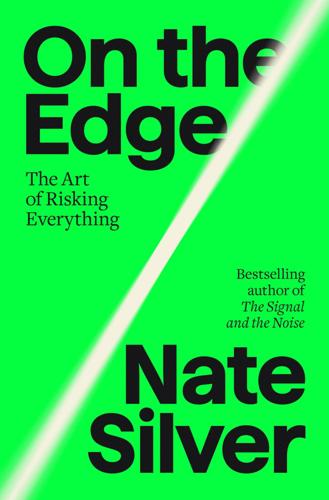
On the Edge: The Art of Risking Everything
by
Nate Silver
Published 12 Aug 2024
“So p(doom) in the long run is, of course, one hundred percent.” Granted, this isn’t the most pressing concern—astronomers estimate we have about 5 billion years to go, so you should go ahead and pick up your dry cleaning. But roon also thinks humanity faces a lot of near-term threats. “We need technological progress,” he said. “Not to get too much into the tech-bro pseudo philosophy. But there’s a secular stagnation. There’s a population bomb[*7] going on. There’s a lot of headwinds for economic progress. And technology is really the only tailwind.” Despite his love of Twitter, roon could do without the Social Network era of Silicon Valley. “Even the Internet did not really give us what was promised….
…
The latter—coined after an astronomical phenomenon postulated by NASA’s Donald Kessler wherein space debris collides in a continuous chain reaction that prevents humanity from escaping Earth’s orbit—refers to a scenario wherein AI traps us in contemporary human values. At some point, this scenario imagines—maybe with GPT-7 or GPT-8—we’ll achieve AGI and the Machine Gods will become all-powerful. However, this AGI will reflect the values of the people who designed it—reasonably well aligned to some combination of tech-bro libertarianism and mildly woke West Coast progressivism. Perhaps it will even be a particularly good instance of these values, more moral than any mortal human being, providing for a bountiful existence for its subjects that eliminates some of the Village’s hypocrisy and the River’s Darwinian hubris.
…
“There’s a lot of evidence in psychology that our bodies impact the way we think, and the way we conceptualize the world and the way we conceptualize other people isn’t captured in machines without bodies,” said Mitchell.[*45] Scientific and economic progress faces a lot of headwinds, and that changes the balance of risk and reward. In my conversation with roon, he used a “tech-bro” term: secular stagnation. Formally, this refers to a chronic condition of little or no economic growth, often coupled with low inflation and interest rates. Informally, it’s used more loosely. It doesn’t necessarily imply that the economy isn’t growing at all—in the U.S., for instance, GDP has grown at a rate of about 2 percent per year so far in the twenty-first century.
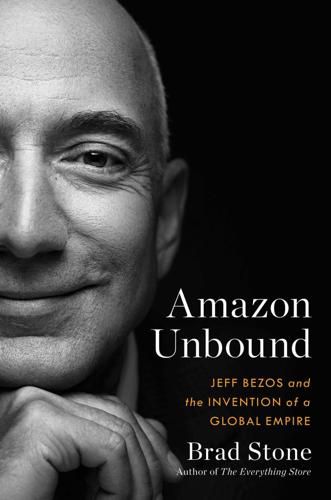
Amazon Unbound: Jeff Bezos and the Invention of a Global Empire
by
Brad Stone
Published 10 May 2021
they gamboled in the western Mediterranean Sea: Ben Feuerherd, “Jeff Bezos and Lauren Sanchez Get Cozy on Mega Yacht in Italy,” Page Six, August 31, 2019, https://pagesix.com/2019/08/31/jeff-bezos-and-lauren-sanchez-get-cozy-on-mega-yacht-in-italy/ (January 26, 2021). wearing a pair of stylish multicolor swim trunks: Priya Elan, “Dress Like a Tech Bro in Kaftan, Sliders, Gilet… and Jeff Bezos’s Shorts,” The Guardian, November 2, 2019, https://www.theguardian.com/fashion/2019/nov/02/jeff-bezos-shorts-tech-bro-fashion (January 26, 2021). one-year anniversary of the murder of Jamal Khashoggi: Bill Bostock, “Jeff Bezos Attended a Vigil at the Saudi Consulate Where Washington Post Writer Jamal Khashoggi Was Murdered One Year Ago,” Business Insider, October 2, 2019, https://www.businessinsider.com/jeff-bezos-visit-saudi-consulate-istanbul-khashoggi-murder-anniversary-2019-10 (January 26, 2021).
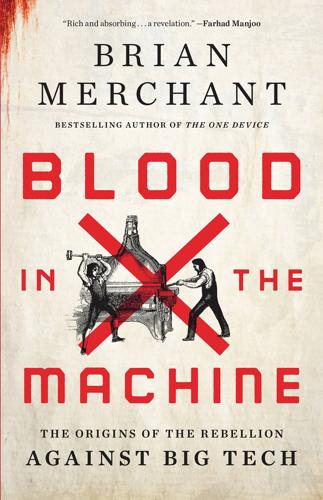
Blood in the Machine: The Origins of the Rebellion Against Big Tech
by
Brian Merchant
Published 25 Sep 2023
Its influence has yet to wane; even today, our most critical and most popular fictions about technology bear the stamp of Frankenstein. And artificial-intelligence-gone-wrong may be the enduring cautionary tale of our biggest blockbuster fictions. Today, Victor Frankenstein is usually a corporation, or a tech bro. In the Terminator franchise, Cyberdyne Systems develops SkyNet, an AI system that takes over military defense. SkyNet becomes self-aware, determines that humans are the greatest threat to its existence, and initiates a nuclear genocide. Cyberdyne is a government contractor that started out as a computer manufacturer based in Sunnyvale, California, a real town, sandwiched between Mountain View and Cupertino, where Google and Apple are headquartered, in the heart of Silicon Valley.
…
Perhaps a corpse would be reanimated; galvanism had given token of such things: perhaps the component parts of a creature might be manufactured, brought together, and endued with vital warmth. 17. In his seminal history Brian Wilson Aldiss, Billion Year Spree: The History of Science Fiction (London: Weidenfeld and Nicolson; New York: Doubleday, 1973), 29. 18. Today, Victor Frankenstein Notable recent Dr. Frankensteins include Oscar Isaac’s AI startup founder in Ex Machina, Eric Andre’s tech bro parody in The Mitchells vs. the Machines, James Spader’s Ultron in The Avengers 2, and so many more. 19. In the Terminator franchise Like Cyberdyne Systems’s HQ in the Terminator films, Yahoo! and LinkedIn are both based in Sunnyvale, California, as is a division of Lockheed Martin, one of the nation’s biggest defense contractors. 20.
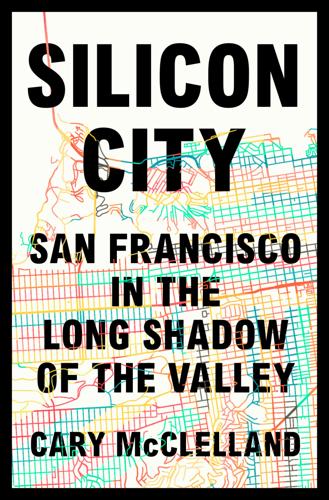
Silicon City: San Francisco in the Long Shadow of the Valley
by
Cary McClelland
Published 8 Oct 2018
The Mexicans who worked good jobs in construction, farming, they have become the underclass. And San Jose became this weird core of Middle America in California—people from Dust Bowl geography with Dust Bowl mentality—surrounded by educated people of color. “Normal” people did not start getting into tech until 2.0. People talk about the “tech bros,” but they wouldn’t have had anything to do with the first tech boom. They understand tech as a business, We wanna grow. We want to make X amount of dollars. We wanna scale. We wanna do this, we wanna do that. They are billionaires wearing hoodies. My parents came when they were children, and there was opportunity here.
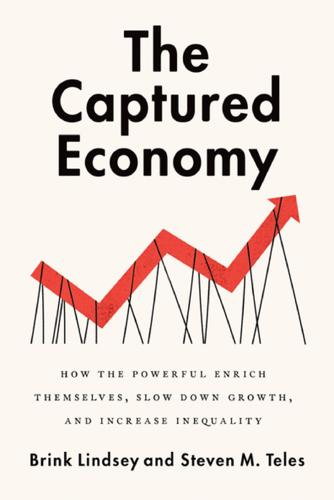
The Captured Economy: How the Powerful Enrich Themselves, Slow Down Growth, and Increase Inequality
by
Brink Lindsey
Published 12 Oct 2017
In other cases, rent-seeking harms the larger interests of the wealthy themselves. The hypertrophy of patent and copyright law impinges on the interests of many big Internet companies. Sky-high housing prices in the Bay Area also pose real problems for high-tech businesses, including populist backlash against “tech bros” who are blamed for bidding up home values.14 Many sectors would have a better shot at hiring top talent if the rents from financialization weren’t luring away so many of the best and brightest. Throughout corporate America, the challenge of controlling health insurance costs creates incentives to tackle rents in the healthcare sector.
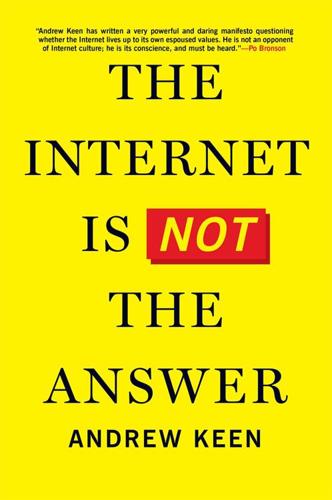
The Internet Is Not the Answer
by
Andrew Keen
Published 5 Jan 2015
Fewer than one in ten venture-funded startups in Silicon Valley are led by women, with only 3% of that venture money going to all-female teams.42 An estimated 2–4% of engineers at tech companies are women,43 and, according to Measure of America, these Silicon Valley women earn less than half of what Silicon Valley men do.44 Equally troubling, there is a persistent sexist culture among many of the young male programmers, the so-called tech bros, who openly treat women as sexual objects and unashamedly develop pornographic products such as the “Titshare” app introduced at the 2013 TechCrunch Disrupt show in San Francisco,45 designed to humiliate their female colleagues. This misogynistic culture extends throughout the Valley, with bias claims surging in 2013 against the male-dominated tech industry46 and even a blue-chip venture capital firm like John Doerr and Tom Perkins’s KPCB becoming embroiled in a discrimination suit with a former female investment partner.47 The Internet hasn’t really benefited most San Franciscans, either.

A Brief History of Motion: From the Wheel, to the Car, to What Comes Next
by
Tom Standage
Published 16 Aug 2021
They already do. In an infamous (and since deleted) blog post from 2012, entitled “Rides of Glory,” Uber analyzed its riders’ behavior to identify the cities and dates with the highest prevalence of one-night stands, for example. The post caused a furor and was seen as symptomatic of the unrestrained “tech bro” culture that prevailed at Uber at the time. But it highlights a broader point. Shared bikes and e-scooters also track who went where, and when, for billing purposes. The companies that operate mobility services are keen to keep this data to themselves: it helps them predict future demand, can be useful when preparing to launch new services, and can also be used to profile riders and target advertising.

Please Report Your Bug Here: A Novel
by
Josh Riedel
Published 17 Jan 2023
I wore my old work pants, in hopes of blending in at Yarbo, but in my rush out of the apartment I’d slid on my brand-new three-hundred-dollar Allen Edmonds wingtip oxfords, which I’d purchased the day we hit a million users, building my wardrobe for a future in which DateDate was a large startup and I managed a team. “Where do you work?” she asked. There was no good way to answer the question. I could say, “In tech,” but that always led to follow-up questions. “DateDate,” I said, adding that I was the first employee, hoping to clarify that I wasn’t another bandwagon tech bro. “Damn,” she said. “Everyone is on that app now.” “Yeah,” I said, feigning laughter. “Are you?” “No, I can’t deal with apps like that. Too overwhelming.” I searched for a way to pivot the conversation. “Where do you work?” “You know the pizza place at the MacArthur stop? I work at the tattoo parlor next door.”
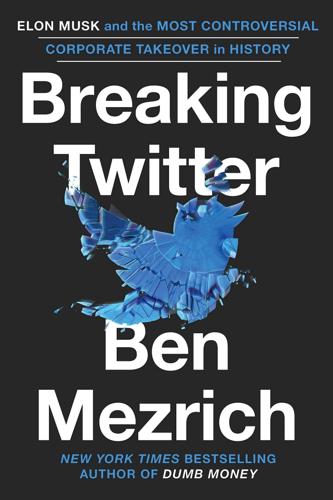
Breaking Twitter: Elon Musk and the Most Controversial Corporate Takeover in History
by
Ben Mezrich
Published 6 Nov 2023
Though the board had resisted the idea of giving Elon a seat, it was clear Jack saw Elon as a potential savior for Twitter; a fellow free-speech near-absolutist with the money and power to effect real change at the company. Parag was aware that in just the past week, there had been multiple conversations between Jack and Elon, precipitated in part by Elon’s poll concerning the free speech issue. Though Parag had not yet seen the texts that had flown between the two “tech bros” during those days, he would not have been surprised by their content: The text conversation had begun in abrupt fashion, when, on March 26, the day after the Twitter poll, Jack had texted to Elon: “Yes, a new platform is needed. It can’t be a company. That’s why I left.” Elon had responded: “Ok.”

Superbloom: How Technologies of Connection Tear Us Apart
by
Nicholas Carr
Published 28 Jan 2025
Congress held highly publicized hearings that felt like show trials, with contrite young techies, suited and tied, submitting to ritual grillings by elderly and often clueless senators. Newspapers and magazines published long investigative reports revealing the corruption at Big Tech’s algorithmic core, alongside scathing portraits of tech bro callowness. Silicon Valley, once portrayed as a David fighting the mass-media Goliath, had become Goliath. The technology industry is a worthy target but also an easy one. In placing the blame for the internet’s failings on social media companies, we let the net itself off the hook while also absolving ourselves of complicity.
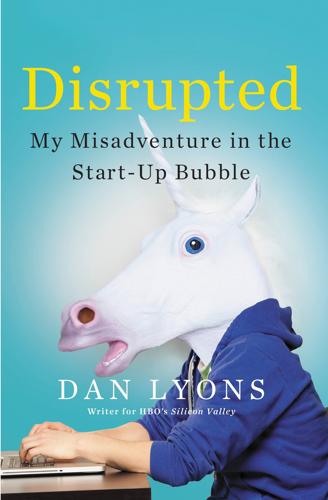
Disrupted: My Misadventure in the Start-Up Bubble
by
Dan Lyons
Published 4 Apr 2016
Benioff and his philanthropy, the dry ice and fog machines, the concerts and comedians: None of this has anything to do with software or technology. It’s a show, created to entertain people, boost sales, and fluff a stock price. I roam the show floor, gazing at middle-aged salespeople in suits who sit on beanbag chairs staring at their phones, and tech bros in T-shirts and man buns playing Ping-Pong. I sit in the Tesla that’s on display outside the auditorium, dreaming that my HubSpot options might someday be worth enough that I can buy a car like this. I figured Cranium would be setting up dinners for the HubSpot gang. But… nothing. No email from Cranium, no invitations to get together.

Sunbelt Blues: The Failure of American Housing
by
Andrew Ross
Published 25 Oct 2021
The majority of the nation’s 3,143 counties are not urban, of course; they are rural or low-density suburban. Yet in the public mind, the housing crisis is still a distinctly urban phenomenon, a predicament especially of top-tier cities where so many aspire to live. This perception is shaped by countless articles about tech bros, investment bankers, or gentrifying hipsters displacing working people of color from New York and San Francisco neighborhoods, and by images of sprawling homeless encampments on downtown streets in Los Angeles and Seattle. We know that “the rent is too damn high” for big-city dwellers because the lion’s share of media commentary focuses on their plight, typically framed as a story about the runaway cost of living in the superstar metropolises.
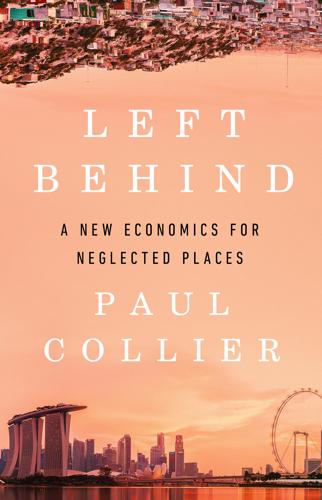
Left Behind
by
Paul Collier
Published 6 Aug 2024
In America, a bizarre legal ruling gave businesses the same political rights as citizens – including freedom of speech.x This fulfilled every lobbyist’s fantasy and, in consequence, the cost of election campaigns exploded. To match the campaign fundraising of the Republicans, the Democrats needed to court their own super-rich: liberal New York bankers and West Coast tech bros. The super-rich shifted the party’s agenda towards their own concerns. As a result, both major parties ignored the (already) left behind. In class-ridden Britain, Labour had traditionally represented the concerns of the working class, but by the 2019 election its members were overwhelmingly young, educated middle-class people in the South-East.
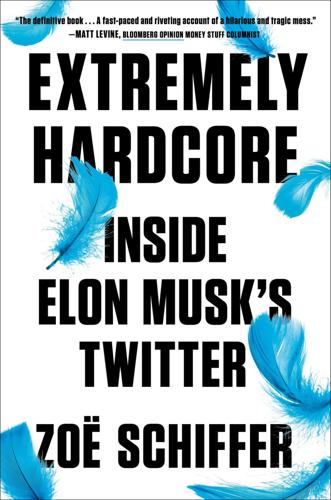
Extremely Hardcore: Inside Elon Musk's Twitter
by
Zoë Schiffer
Published 13 Feb 2024
For years, they’d been working to balance content moderation with free speech. If Twitter failed to enforce its policies, it would get a call from Apple, hinting that the company’s next app release might be held up if it didn’t take stronger action. But Musk wasn’t talking to the trust and safety team. He was talking to his peers, ultrawealthy tech bro libertarians, many of whom were out of touch with the experience of Twitter employees and regular users. Court filings would later reveal that in March 2022 Musk was telling his friend and longtime investor in his companies, Valor Equity Partners founder and CEO Antonio Gracias, that free speech mattered most when it was “someone you hate spouting what you think is bullshit.”
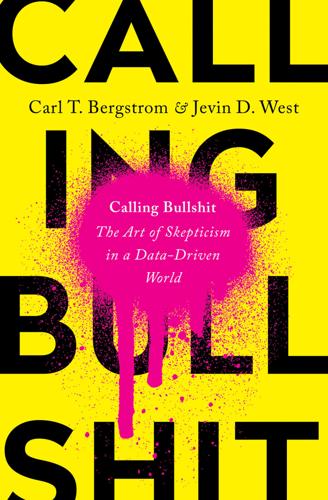
Calling Bullshit: The Art of Scepticism in a Data-Driven World
by
Jevin D. West
and
Carl T. Bergstrom
Published 3 Aug 2020
He described bullshit as what people create when they try to impress you or persuade you, without any concern for whether what they are saying is true or false, correct or incorrect. Think about a high school English essay you wrote without actually reading the book, a wannabe modernist painter’s description of his artistic vision, or a Silicon Valley tech bro co-opting a TED Talk invitation to launch his latest startup venue. The intention may be to mislead, but it need not be. Sometimes we are put on the spot and yet have nothing to say. The bullshit we produce under those circumstances is little more than the “filling of space with the inconsequential.”
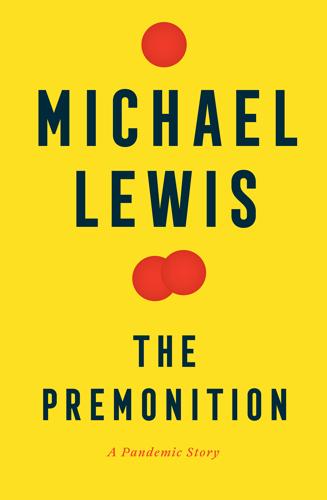
The Premonition: A Pandemic Story
by
Michael Lewis
Published 3 May 2021
It had people living on the streets. It had upper-middle-class people and really poor people. It had teleworkers and construction workers. It had four churches, a street of retail shops, and a park. It held a big working-class Latino population, and among them, like chips in a cookie, were lots of hipsters and tech bros. It was as if someone had thrown the pieces to seven different puzzles into one box. It wasn’t clear that the pieces were happy about this. The lower-floor windows of almost every building were barred. Signs everywhere told strangers to keep out, and murals and graffiti had unkind words for the ICE police.

Paper Girl: A Memoir of Home and Family in a Fractured America
by
Beth Macy
Published 6 Oct 2025
“For the first time in history, the individual is the basic unit of society,” the journalist Bill Bishop, the author of The Big Sort: Why the Clustering of Like-Minded America Is Tearing Us Apart, from 2008, told me. “People don’t want community; they want a platform.”[14] The scramble for burnished egos and platforms had been orchestrated by far-off tech bros, billionaires who addicted us to amped-up outrage that pitted us against one another and made it downright impossible for us to collaborate on our shared economic concerns. No wonder the block I grew up on looked more like a bunker now than a diverse but tight-knit neighborhood. * * * — I struggled to recognize my hometown.

The Raging 2020s: Companies, Countries, People - and the Fight for Our Future
by
Alec Ross
Published 13 Sep 2021
Ireland’s low tax rates and permissive corporate laws have made it something of a mecca for American technology companies looking to expand their presence across the Atlantic. Google’s glassy European headquarters (where Google Ireland Limited is based) ranks among the tallest buildings in Dublin, towering over the city’s Grand Canal. The surrounding neighborhood, a former industrial yard turned tech-bro hot spot, is also home to the European headquarters of Twitter, Facebook, LinkedIn, and Airbnb. Apple set up shop in Cork, where it is the city’s largest private employer. According to the most recent data, American companies booked more revenue in Ireland than in the sixteen largest European countries, combined.
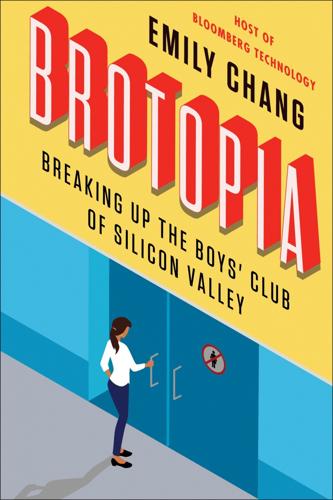
Brotopia: Breaking Up the Boys' Club of Silicon Valley
by
Emily Chang
Published 6 Feb 2018
In the beginning, however, Page and Brin put effort into hiring a diverse team and gave real power to a number of notably strong, smart women. The co-founders embodied the epitome of what venture capitalists and later public shareholders believed made the greatest tech entrepreneurs: they were “all nerd” with big visions, yet their interest in hiring women, explicitly, set them apart from the tech bros and PayPal Mafia. Whether Google would have achieved the same level of success without hiring these key early women is impossible to know. But what is clear is that several women executives were critical, in those early days, to creating that rarest of technological start-ups: one that turned an actual profit within just a few years.
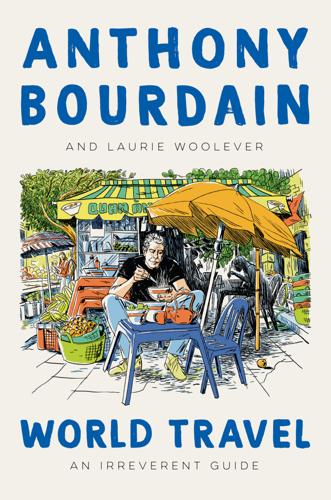
World Travel: An Irreverent Guide
by
Anthony Bourdain
and
Laurie Woolever
Published 19 Apr 2021
Whether outfitting prospectors during the Alaskan gold rush or looking for some kind of cred from the music scene, it’s always boom or bust. Now it’s a new kind of boom: Microsoft, Expedia, and Amazon are the big dogs in town. A flood of them; tech industry workers, mostly male, derisively referred to as ‘tech boys’ or ‘tech bros’ are rapidly changing the DNA of the city.” ARRIVAL AND GETTING AROUND * * * Seattle-Tacoma International Airport (SEA), also known as SeaTac, serves a large number of domestic and international flights; it’s the main West Coast hub for Delta’s trans-Pacific flights and for Alaska Airlines.

The Heat Will Kill You First: Life and Death on a Scorched Planet
by
Jeff Goodell
Published 10 Jul 2023
Ash trees, which make up the majority of shade trees in US cities like Chicago and Milwaukee, have been wiped out by the emerald ash borer, an Asian jewel beetle that arrived in North America in the early 2000s. One study found that emerald ash borers could kill 1.4 million street trees in the US by 2050. Here in Austin, big oaks and pecans are regularly cut down by tech bros making room for big houses and swimming pools. Laws and regulations don’t stop them—so what if they have to pay a little fine? One of the most beautiful and historic trees in Austin, a six-hundred-year-old oak known as the Treaty Oak because it is where city founder Stephen F. Austin supposedly met local Native Americans to negotiate and sign Texas’s first boundary treaty, was poisoned in 1989 by a guy who read some witchcraft books and thought killing the tree would somehow end his sorrow over being rejected by a woman (the tree was badly damaged but it’s still alive).
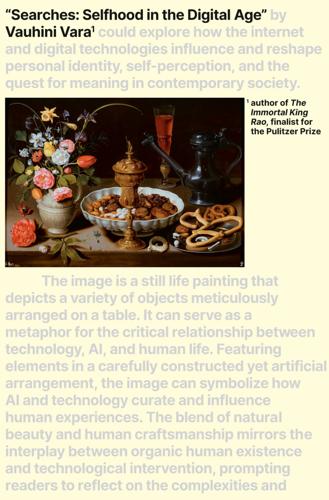
Searches: Selfhood in the Digital Age
by
Vauhini Vara
Published 8 Apr 2025
I’d planned to major in international relations, with a minor in economics; now I added creative writing as a second minor. But after graduating, I’d ended up concentrating almost entirely on journalism. I spent the first and last moments of each day answering emails or phone calls—and most of the ones in between chasing CEOs, venture capitalists, financial analysts, and assorted tech bros for a couple of minutes of their time. Meanwhile, several of my friends from Stanford had gone on to graduate programs in creative writing. I adored the Journal and found my work there meaningful and important, but I worried about how Murdoch would change the paper. It wasn’t just that, though. Newspaper journalism’s insistence on straight, just-the-facts reporting also left little room for writing about what Silicon Valley’s incursion into all the most private crevices of human life felt like to me; that column about Beacon had been the closest I’d come to expressing any real sentiment about it.
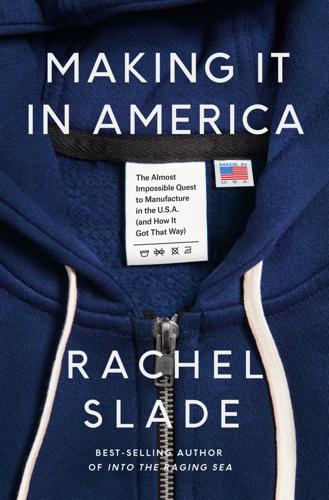
Making It in America: The Almost Impossible Quest to Manufacture in the U.S.A. (And How It Got That Way)
by
Rachel Slade
Published 9 Jan 2024
A graphic designer could help them replace their simple five-pointed star logo with a new one that felt truer to their company. Once they had all those things in place, Ben hoped, they could go direct to consumers to support their inventory production model. Ben often talked about his ideal consumer: a mythical tech bro in Brooklyn who’d pay $140 for an ethically made workingman’s hoodie. The Waxmans had faith that once the American Roots story got out, their market share would blow up, so they also wanted a social media guru to work their Instagram and Facebook accounts and connect with influencers who jibed with what they were up to and willingly pushed their products.

When It All Burns: Fighting Fire in a Transformed World
by
Jordan Thomas
Published 27 May 2025
Since it was Scheer’s third year on the crew, he was supposed to be demonstrating leadership, so he crossed his arms and looked down at me in disapproval. “Lose those glasses, Thomas,” Scheer said in his surfer voice. “You look like a total kook.” Scheer had recently told me that a kook was the pinnacle of hotshot insults. Call me a wimp, call me a jerk, but never a kook. A kook was a tech bro with a Tacoma truck, a city slicker who needs rescuing on a day hike, a surfer caught in a riptide. Or a rookie sawyer who wore safety glasses to sharpen his saw. “He looks like a chemist,” cackled the lead sawyer, looking down at me. “A goddamn mad scientist. An embarrassment! Take off those glasses, Thomas.”
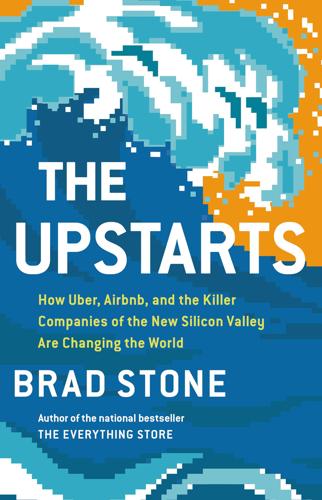
The Upstarts: How Uber, Airbnb, and the Killer Companies of the New Silicon Valley Are Changing the World
by
Brad Stone
Published 30 Jan 2017
Home prices in the city were skyrocketing as a result, and gentrification was rapidly changing beloved neighborhoods, such as the predominantly Latino Mission District. It all produced a kind of poorly articulated rage. The convenient culprits included the street-clogging double-decker company buses that ferried employees to the offices of Google, Facebook, and Apple; the tech companies themselves; and the so-called tech bros, vaguely defined stereotypical males who could be relied on to regularly Tweet or blog something racist, sexist, or generally insensitive, thereby indicting the entire tech industry. “Number 5: the 49ers,” wrote a startup founder named Peter Shih in a much reviled blog post titled “Ten Things I Hate About You, San Francisco Edition.”
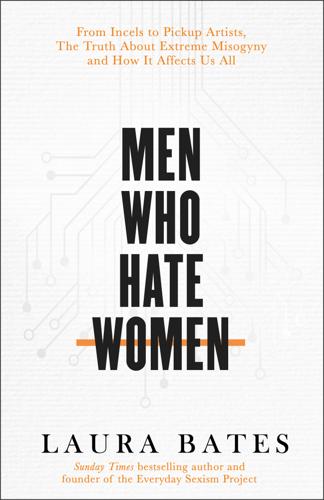
Men Who Hate Women: From Incels to Pickup Artists, the Truth About Extreme Misogyny and How It Affects Us All
by
Laura Bates
Published 2 Sep 2020
The idea that online abuse is something harmless that happens in a separate bubble that can’t touch your real life is one that you can only really subscribe to if you haven’t experienced such abuse. Unfortunately, that means that it’s an idea that makes sense to the straight, white, male, middle-class majority of journalists who are reporting on the problem, the tech bros who are responsible for building and policing the platforms where it occurs, and the male politicians and lawmakers legislating (or not) against online abuse. A fundamental part of the problem is that those whose lives are deeply, endlessly affected by it are not, by and large, those with the power to stop it.
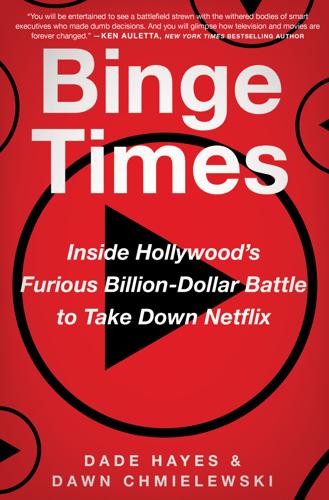
Binge Times: Inside Hollywood's Furious Billion-Dollar Battle to Take Down Netflix
by
Dade Hayes
and
Dawn Chmielewski
Published 18 Apr 2022
Rather, they sought out a handful of caviar projects worthy of how Apple viewed its premium consumer brand. Though the pair had spent the bulk of their careers as sellers, not the buyers they would be at Apple, they were well known to Hollywood’s creative community and dealmakers. The consensus view was that they seemed capable of overcoming the industry’s reflexive wariness of tech bros blowing into town from Silicon Valley, flashing cash and bragging about reinventing entertainment. Over two years, the duo struck deals with a who’s who of Hollywood, among them filmmaker Steven Spielberg, talk show host and media mogul Oprah Winfrey, and Academy Award–winning actress Octavia Spencer.
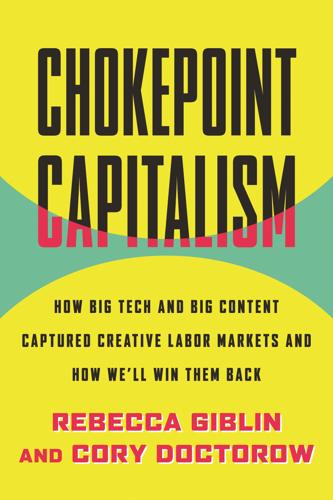
Chokepoint Capitalism
by
Rebecca Giblin
and
Cory Doctorow
Published 26 Sep 2022
Its founder, Craig Newmark, rejected advertising from the very beginning in favor of small fees on employers posting job ads in some cities. The company has focused on giving customers what they want, rather than sucking them dry for the value of their attention. This approach has long baffled the tech bros who were surfing their way to billionaire status alongside it, including StubHub cofounder Eric Baker. He estimated that in 2005 alone Craigslist could have had revenues of over half a billion dollars had it been willing to fully monetize its user base (though this guess has since been criticized as being wildly overblown).
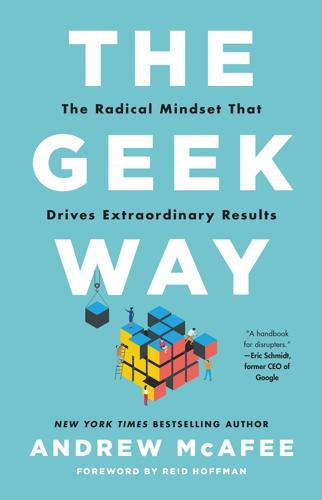
The Geek Way: The Radical Mindset That Drives Extraordinary Results
by
Andrew McAfee
Published 14 Nov 2023
As we’ll see in the chapters ahead the geeks take all these dials and twist them as far as possible in the same direction—the one that fosters norms of science, ownership, speed, and openness, and that creates a fast-moving, freewheeling, egalitarian, evidence-driven, argumentative, autonomous corporate culture. According to the conventional wisdom of the industrial era, this isn’t a good idea. A culture like that might be appropriate for a young startup, or a homogeneous group of tech bros, or a Skunk Works (a small division set up within a big company to work on secret projects). But at some point, the standard business advice goes, you have to grow up. You have to move the dials toward the center as a company grows and matures, as it has to execute with high reliability instead of just innovating, and as its workforce grows and becomes more dispersed and diverse.
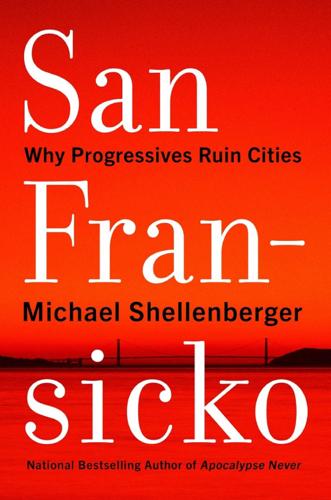
San Fransicko: Why Progressives Ruin Cities
by
Michael Shellenberger
Published 11 Oct 2021
Citywide bans increased 60 percent between 2011 and 2014.12 In 2016, a start-up founder in San Francisco sparked outrage after he published an open letter where he called the homeless “riff-raff,” lamented that he shouldn’t have to see the homeless on his way to work each day, and demanded San Francisco’s leaders do something about it.13 His letter attracted attention from the international news media. “In an open letter to the city’s mayor Ed Lee,” wrote the Guardian, “entrepreneur Justin Keller said he is ‘outraged’ that wealthy workers have to see people in pain and despair.” The reporter referred disparagingly to the man as a “tech bro.”14 For about forty years, from 1930 to 1970, black families were denied loans and channeled into renting rooms, whereas white families were encouraged to buy homes.15 The Home Owners’ Loan Corporation, a federal agency, designated some neighborhoods as “hazardous” for lenders before the Fair Housing Act of 1968, and the segregation caused by this policy is still measurable today in many cities.16 And exclusionary housing policies didn’t come to an end, scholars argue; they simply took the form of opposition to new homes and apartment buildings for “quality of life” and environmental reasons.17 Racism contributes to homelessness, addiction, and overdose, argue progressives.
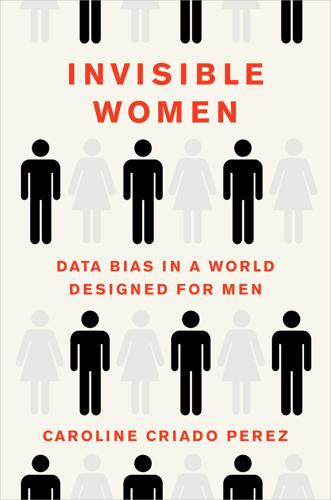
Invisible Women
by
Caroline Criado Perez
Published 12 Mar 2019
Even when, in the early twentieth century, influential Swiss architect Le Corbusier was devising a standard human model for use in architecture, the female body was ‘only belatedly considered and rejected as a source of proportional harmony’,9 with humanity instead represented by a six-foot man with his arm raised (to reach that top shelf I can never reach). The consensus is clear: women are abnormal, atypical, just plain wrong. Why can’t a woman be more like a man? Well, apologies on behalf of the female sex for being so mysterious, but no, we aren’t and no we can’t. And that is a reality that scientists, politicians and tech bros just need to face up to. Yes, simple is easier. Simple is cheaper. But simple doesn’t reflect reality. Back in 2008, Chris Anderson, then editor of tech magazine Wired, penned an article headlined ‘The End of Theory: The Data Deluge Makes the Scientific Model Obsolete’.10 We can ‘stop looking for models’, Anderson claimed.
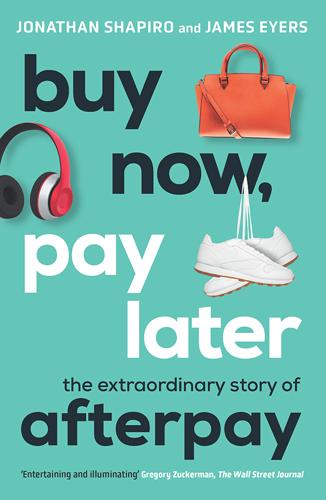
Buy Now, Pay Later: The Extraordinary Story of Afterpay
by
Jonathan Shapiro
and
James Eyers
Published 2 Aug 2021
There’s no confetti parade, but there’s the placard, the champagne and the photo opportunity of the executives ringing the bell in a function room behind the screens where members of the public can drop in and see the market’s equity prices. If the listing of Afterpay was the beginning of something new and exciting, there were no clues. Molnar and Eisen broke with so-called tech bro tradition, too. They opted against bright T-shirts, posing for photographs at the ASX satellite office in Melbourne in conservative dark suits. The pair struck a slightly awkward pose as Eisen, who kept one hand in his pocket, gestured to Molnar to pull the rope of the bell. Nick yanked it with a sheepish grin before Eisen put out his hand to shake Molnar’s—only for him to lift it up so he rang the bell, too.
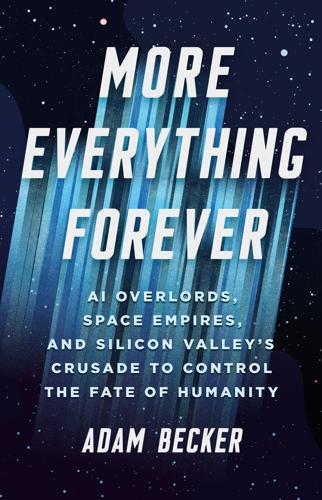
More Everything Forever: AI Overlords, Space Empires, and Silicon Valley's Crusade to Control the Fate of Humanity
by
Adam Becker
Published 14 Jun 2025
But contrarian thinking can itself turn into a kind of groupthink when it becomes reflexive, automatically dismissing nearly anything perceived to be widespread conventional wisdom or expert opinion, no matter its source. This attitude—which economist Adam Ozimek calls a “brain-rotting drug”—is widespread among the leaders of Silicon Valley. “Tech bros appear to be especially susceptible to brain-rotting contrarianism,” writes Paul Krugman. “Their financial success all too often convinces them that they’re uniquely brilliant, able to instantly master any subject, without any need to consult people who’ve actually worked hard to understand the issues.”
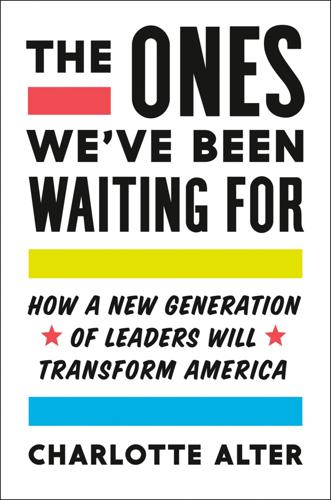
The Ones We've Been Waiting For: How a New Generation of Leaders Will Transform America
by
Charlotte Alter
Published 18 Feb 2020
Progressives thought that was bullshit, but some voters seemed sick of the ideological tug-of-war: by November, he was first place in Iowa, positioning himself as the younger, more coherent alternative to seventy-seven-year-old Joe Biden. I even met voters in Iowa who had supported Bernie in 2016 and now planned to vote for Pete. Still, his campaign would run into some serious problems. Although he was a favorite among Silicon Valley tech bros and moderate midwesterners, he struggled to make inroads with the activist Democratic base: many of the young progressives who might have been excited about generational change thought he was too moderate for their tastes. More important, he failed to attract meaningful support from black and Hispanic voters, not a good place to be in Democratic primaries.
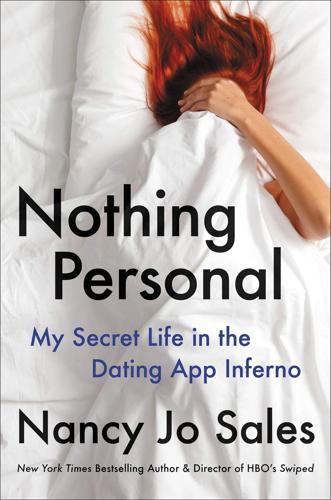
Nothing Personal: My Secret Life in the Dating App Inferno
by
Nancy Jo Sales
Published 17 May 2021
As Wolfe described it, it sounded almost as if the purpose of Tinder was to serve up women to men—and men in frat houses, no less, which have become all but synonymous with rape culture (an extensive body of research on the problem of rape in fraternity houses goes back to the 1990s. Fraternity men are significantly more likely to commit rape, according to studies). So, seen from a certain angle, you could almost say that Tinder was invented by a couple of misogynistic tech bros and marketed by a foot soldier for the patriarchy, all of whom the media made into stars. As Tinder caught fire, registering “a billion swipes a day” by its own account, its founders became giddy with their success. In 2014, Rad and Mateen posted on their Instagram feeds screenshots of a new Urban Dictionary term: “Tinder slut.”
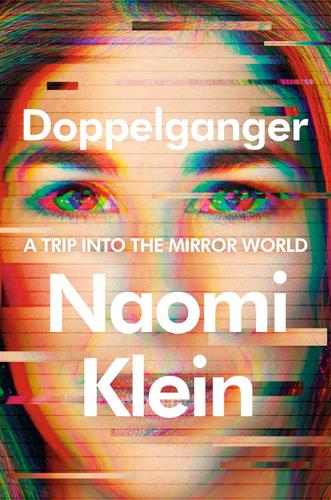
Doppelganger: A Trip Into the Mirror World
by
Naomi Klein
Published 11 Sep 2023
That imperative certainly explains a lot about the kinds of doubling discussed so far. The accelerated need for growth has made our economic lives more precarious, leading to the drive to brand and commodify our identities, to optimize our selves, our bodies, and our kids. That same imperative set the rules (or lack thereof) that allowed a group of profoundly underwhelming tech bros to take over our entire information ecology and build a new economy off our attention and outrage. It’s also the logic behind the offloading of Covid response onto the individual (wear your mask, get your jab), to the exclusion of those bigger-ticket investments in strengthening public schools, hospitals, and transit systems.
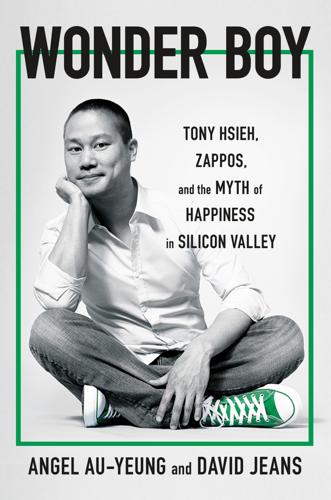
Wonder Boy: Tony Hsieh, Zappos, and the Myth of Happiness in Silicon Valley
by
Angel Au-Yeung
and
David Jeans
Published 25 Apr 2023
CHAPTER 10 THE DESERT TECH UTOPIA Like other locals of downtown Las Vegas, Natalie Young had heard that there was a rich guy walking around the neighborhood. Rumor had it he was going to spend millions of dollars to transform the area. But she was wary of this new arrival, Tony Hsieh. He was always surrounded by an entourage, like some hotshot. The last thing downtown needed was a moneyed tech bro to gentrify the neighborhood and break open the tight-knit group of locals who spent their nights at the Downtown Cocktail Room. But on a fall night in 2011, Natalie’s life changed. She had been reluctant to go out that evening. Actually, she wasn’t much of a night owl at all. She’d been in recovery for more than a decade, and going to bars with friends wasn’t her idea of a good time.

Fodor's Oregon
by
Fodor's Travel Guides
Published 13 Jun 2023
Invigorated start-up and culinary scenes add fresh energy to the urban core, while active families fleeing California’s high cost of living are, in turn, pushing up the cost of real estate here. Even as Oregon’s biggest city east of the Cascades grows more cosmopolitan, it remains a monoculture—demographically, it’s overwhelmingly white and at times, it seems everybody is an athlete, a tech bro, or a brewer. But thankfully, everyone strives to make a good first impression. Bend’s heart is a handsome area of about four square blocks, centered on Wall and Bond Streets. Here you’ll find boutique stores, galleries, independent coffee shops, brewpubs, creative restaurants, and historic landmarks such as the Tower Theatre, built in 1940.
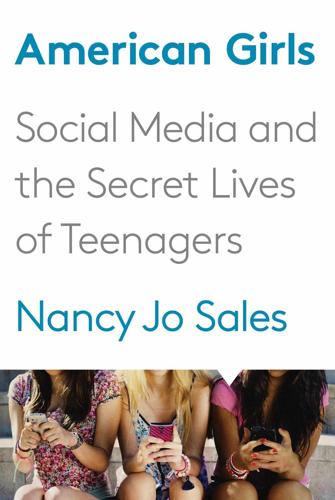
American Girls: Social Media and the Secret Lives of Teenagers
by
Nancy Jo Sales
Published 23 Feb 2016
; and Meg Whitman, CEO of Hewlett Packard, there are few highly placed female executives in Silicon Valley. In the digital revolution, which has provided so many job opportunities and seen the start of so many businesses and empires, men have reaped most of the profits. And the culture of Silicon Valley is a male-dominated culture, some say a “frat boy” culture, populated by “brogrammers” and “tech bros.” “In inverse ratio to the forward-looking technology the community produces, it is stunningly backward when it comes to gender relations,” wrote Nina Burleigh in a 2015 Newsweek piece, “What Silicon Valley Thinks of Women.” “Google ‘Silicon Valley’ and ‘frat boy culture’ and you’ll find dozens of pages of articles and links to mainstream news articles, blogs, screeds, letters, videos and tweets about threats of violence, sexist jokes and casual misogyny, plus reports of gender-based hiring and firing, major-league sexual harassment lawsuits and a financing system that rewards young men and shortchanges women.”
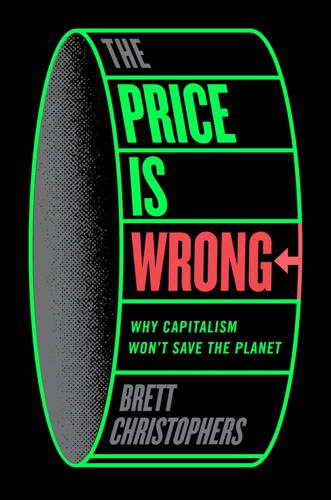
The Price Is Wrong: Why Capitalism Won't Save the Planet
by
Brett Christophers
Published 12 Mar 2024
‘The private sector alone will not deliver the energy transition,’ wrote Nick Butler – who had worked at BP for the best part of three decades – in 2019.59 ‘Capitalism won’t deliver the energy transition fast enough,’ Derek Brower has more recently concurred. ‘There’s too much to do, and given the urgency and the need to get the solution right, this isn’t a task for your favourite ESG-focused portfolio manager or the tech bros. The sheer scale of the physical infrastructure that must be revamped, demolished or replaced is almost beyond comprehension.’60 For such disputants, a massively expanded role for the state is typically the answer. ‘Governments, not BlackRock, will have to lead this new Marshall Plan. And keep doing it,’ insisted Brower.61 Not only, critics of status-quo approaches say, should the state invest heavily in new renewable energy capacity, but, many (though not all, and certainly not Butler) argue, it should also nationalize existing privately owned electricity generation assets, whether green or brown, thereby giving it considerable power to control output and prices rather than leaving production and pricing to the fate of private and market forces.

The Aristocracy of Talent: How Meritocracy Made the Modern World
by
Adrian Wooldridge
Published 2 Jun 2021
West, Billionaires: Reflections on the Upper Crust (Washington, DC, Brookings Institution Press, 2014), p. 126 3 Peter Thiel, with Blake Masters, Zero to One: Notes on Startups, or How to Build the Future (London, Virgin Books, 2014) 4 Julia Carrie Wong and Matthew Cantor, ‘How to Speak Silicon Valley: 53 Essential Tech-Bro Terms Explained’, Guardian, 27 June 2019 5 Daniel Markovits, The Meritocracy Trap: The Tyranny of Just Deserts (New York, Penguin Press, 2019), p. 114 6 Emma Duncan, ‘Special Report: Private Education’, Economist, 13 April 2019, p. 3 7 The Sutton Trust, ‘Elitist Britain 2019: The Educational Backgrounds of Britain’s Leading People’, p. 5 8 Ibid., p. 12 9 Francis Green and David Kynaston, Engines of Privilege: Britain’s Private School Problem (London, Bloomsbury, 2019), p. 96 10 ‘America’s New Aristocracy’, Economist, 22 January 2015; ‘How the Internet Has Changed Dating’, Economist, 18 August 2018 11 Jeremy Greenwood et al., ‘Marry Your Like: Assortative Mating and Income Inequality’ (NBER Working Paper No. 1989) 12 A.

Rentier Capitalism: Who Owns the Economy, and Who Pays for It?
by
Brett Christophers
Published 17 Nov 2020
The discussion of their market dominance in the literature focuses on the product market side. However, it would also be possible for them to become dominant in certain geographic labour markets.’69 To be sure, the notion that the digital-platform space might be the locus of rapidly escalating inequalities between capital and labour clashes with the popular image of ‘tech bros’ setting up platform companies, taking them to IPO (initial public offering), and earning vast financial rewards in the process. But to imagine that all workers employed by Facebook, Google and the like are on six-figure salaries is to neglect various critical dimensions – temporal, geographical and structural – of labour relations at such companies.

Wanderers: A Novel
by
Chuck Wendig
Published 1 Jul 2019
Best we can do is eat, drink, fuck, and did I mention drink? Cheers, everyone. @TheCompiler01 4 replies 7 RTs 12 likes OCTOBER 15 Las Vegas, Nevada THIS WAS NOT BENJI’S FIRST rodeo, as the saying went—he had been to Vegas many times before, because inevitably, year after year, some tech-bro or pharma-jerk scheduled a conference in this city. Yes, the city was ultimately convention-friendly, and made every effort to accommodate the needs of every industry that came here. But the reality was, people wanted an excuse to come to Vegas. They wanted to gamble. They wanted to drink. They wanted the pool, the miles-long buffets, the occasional tawdry dalliance with a cocktail waitress, flight attendant, or high-dollar independent escort.
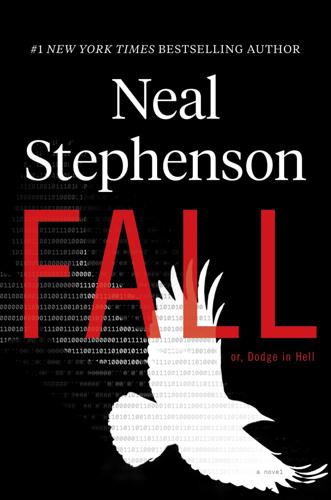
Fall; Or, Dodge in Hell
by
Neal Stephenson
Published 3 Jun 2019
This becomes infinitely more effective if we can say, ‘And look, our dude C was on the ground in Moab before sundown, personally establishing the ground truth.’” Laurynas was a Lithuanian basketball prodigy who had attended Michigan on a scholarship and then wrong-footed everyone by turning out to be actually smart. He would answer to “Lawrence.” He had picked up American tech-bro speech pretty accurately, but his accent broke the surface when he was envisioning something that he thought would be awesome. “Before sundown?” Corvallis repeated. “That would be preferable. Darkness, video, not a good fit.” Laurynas was laughing as he hung up. He had the big man’s joviality when it came to the doings of small people.